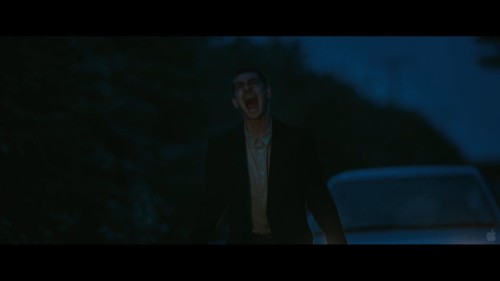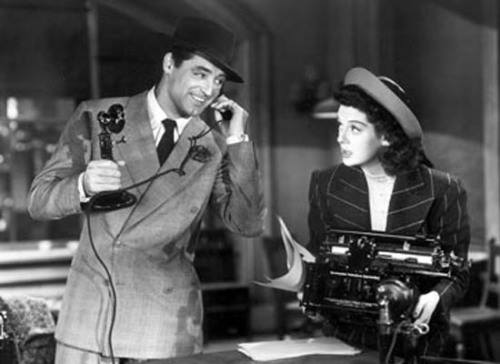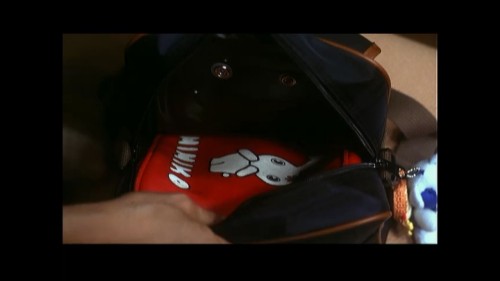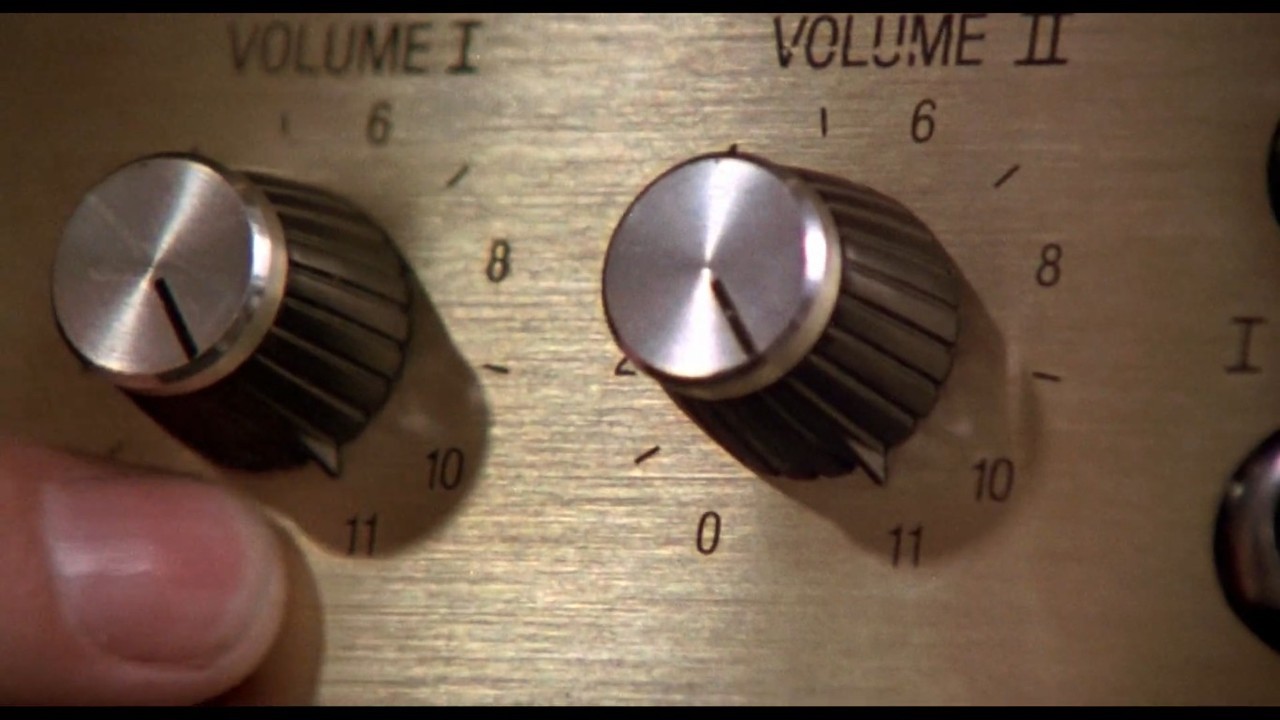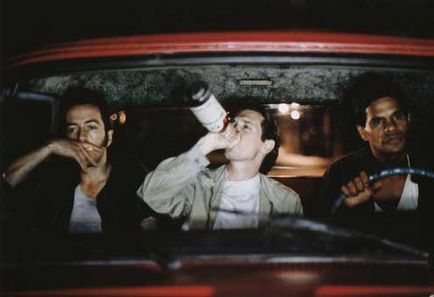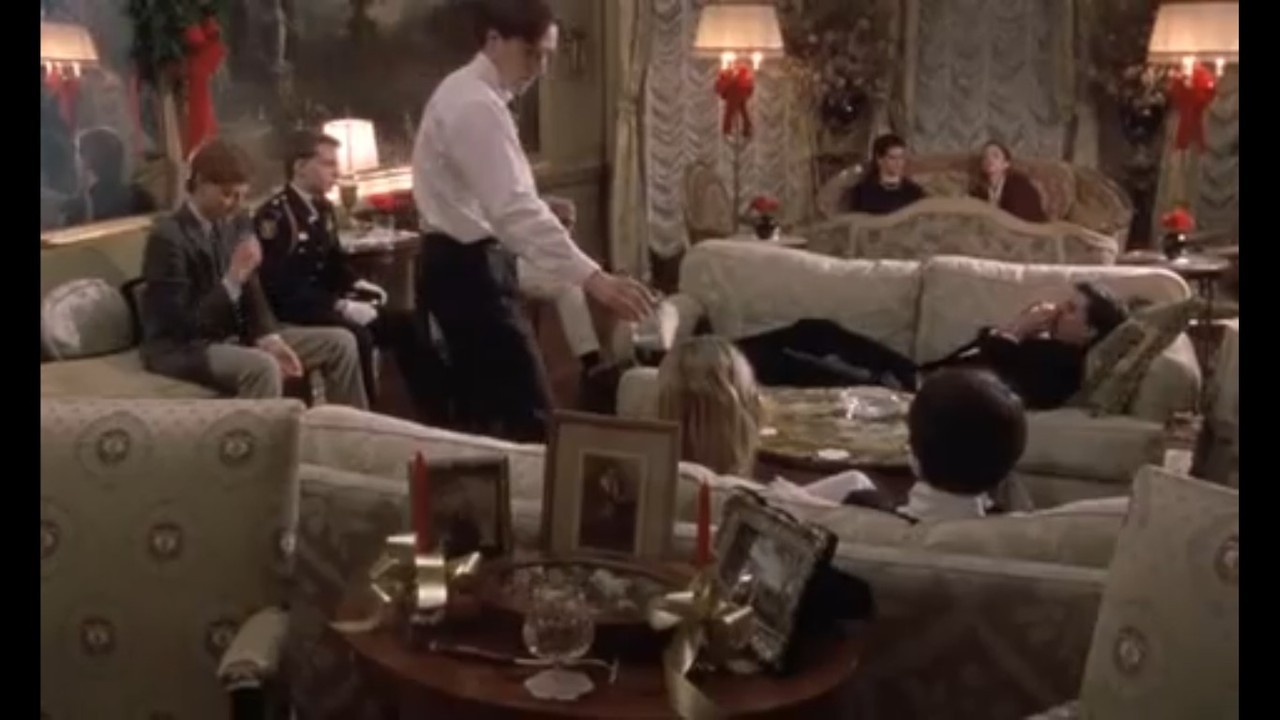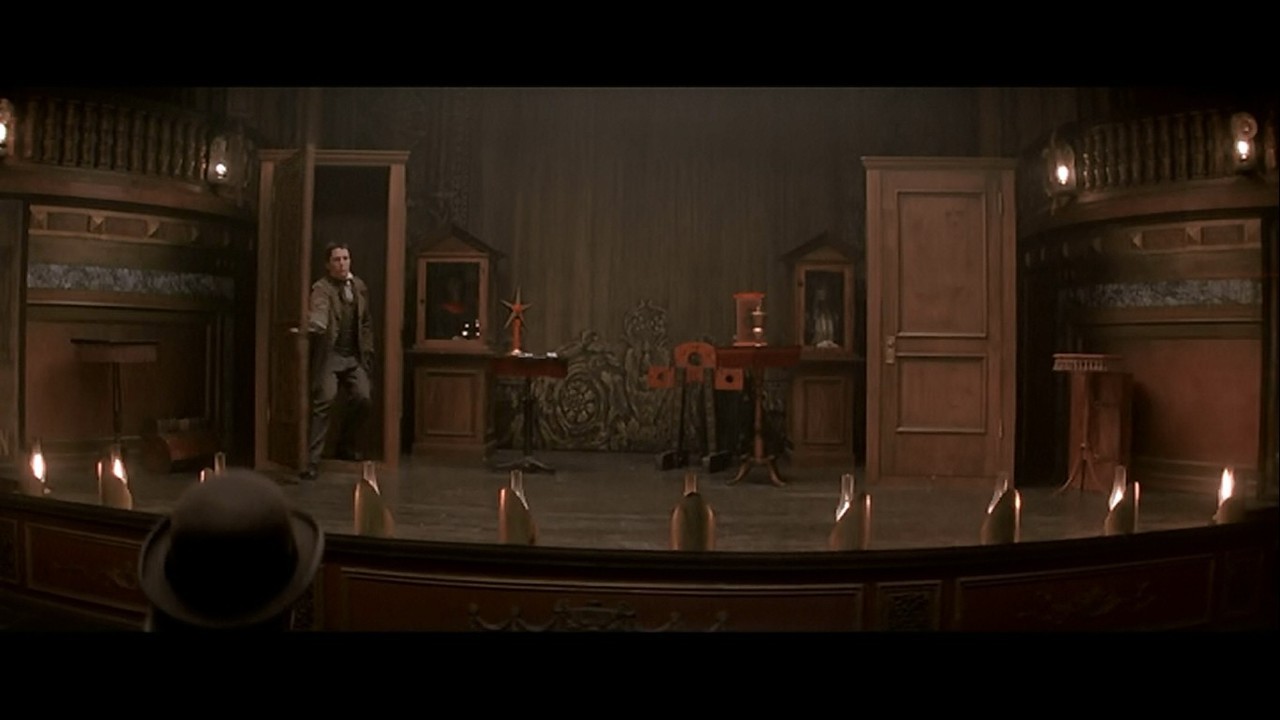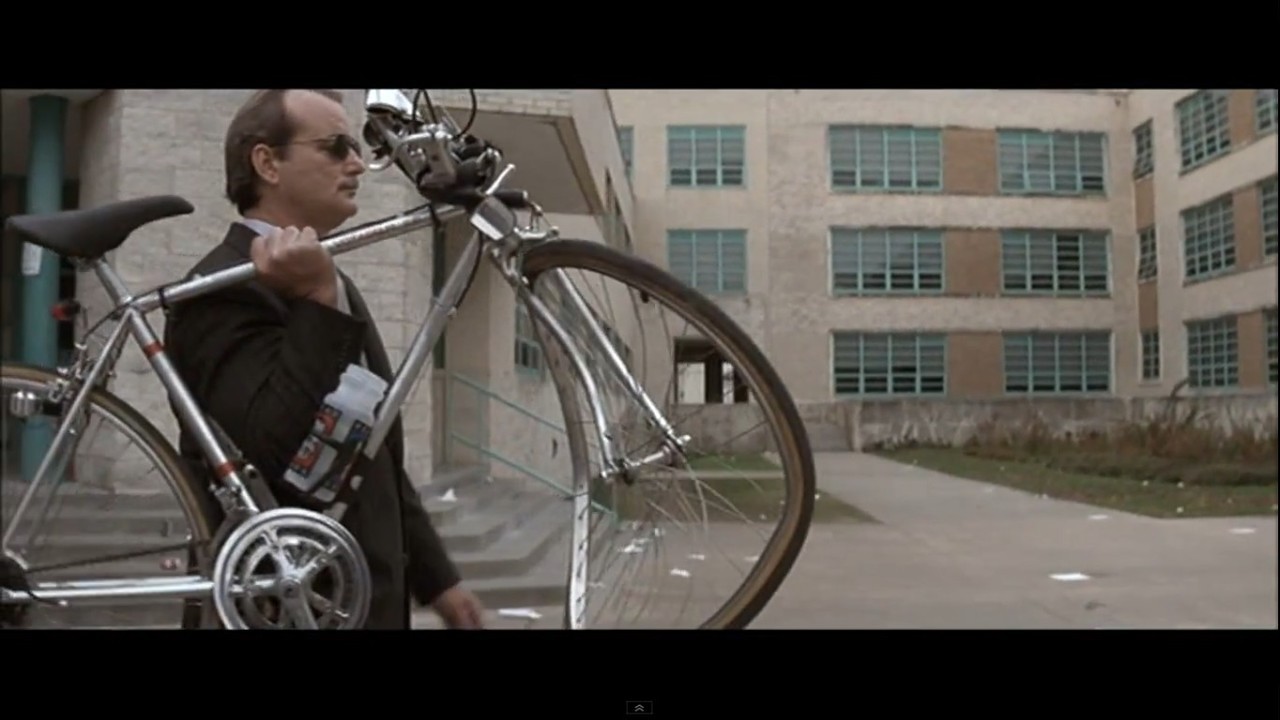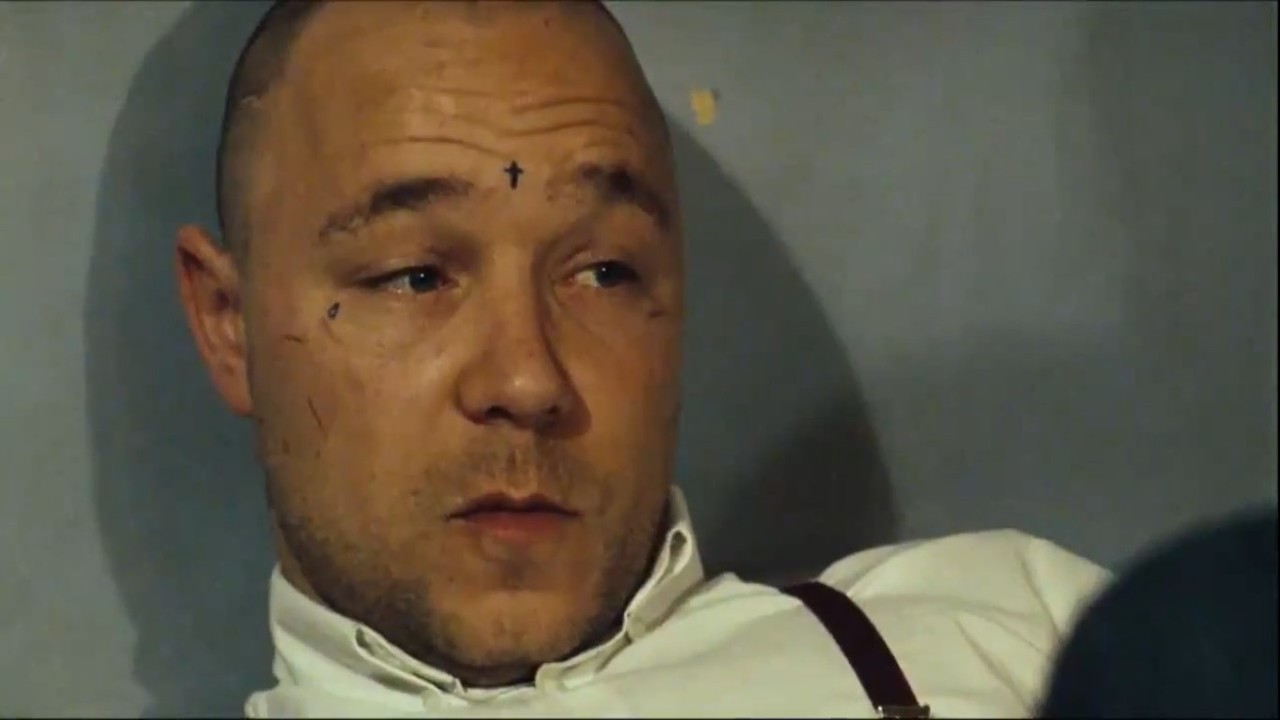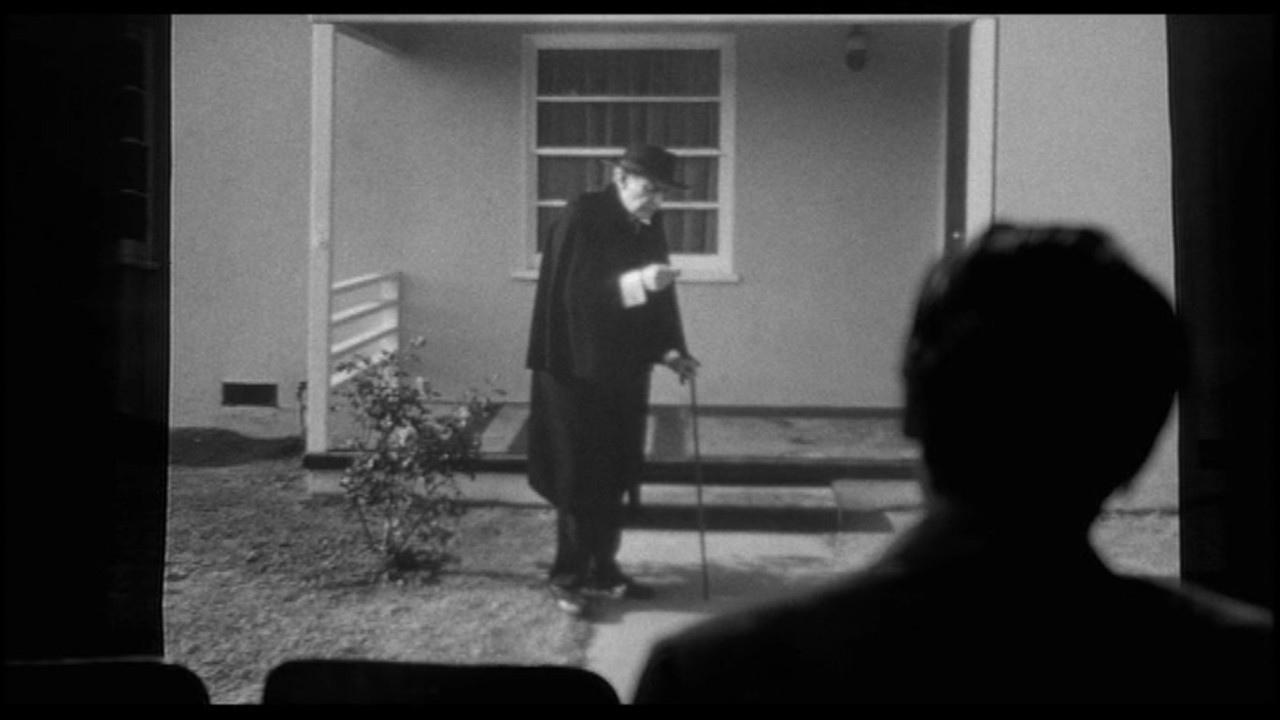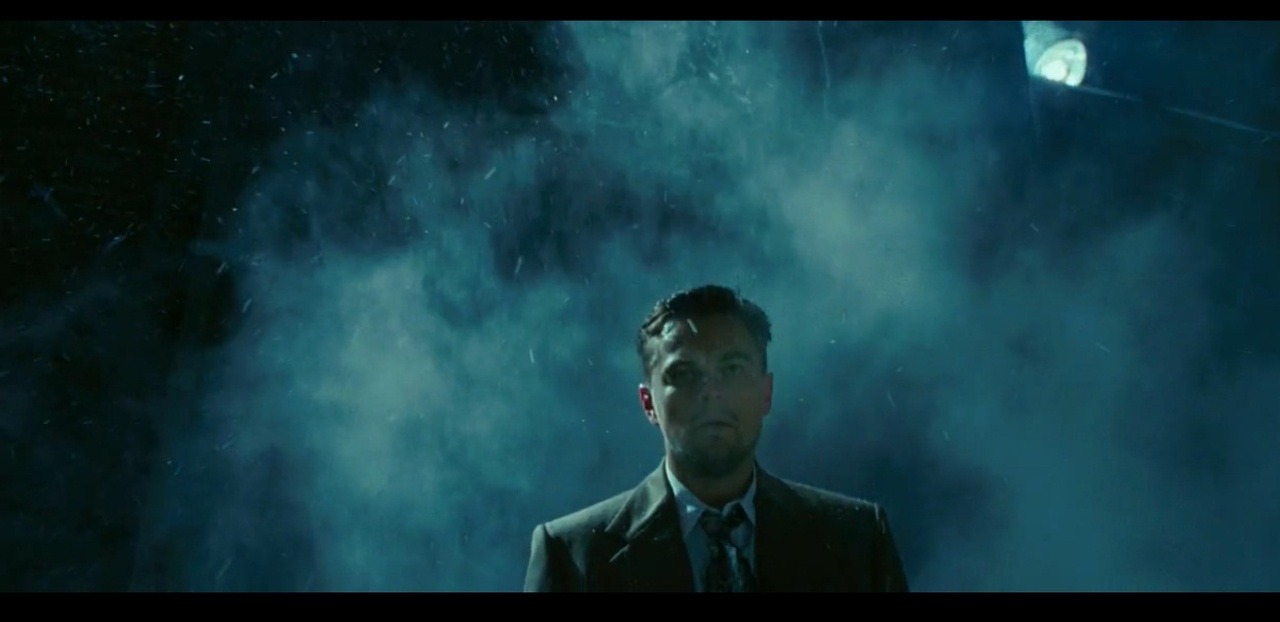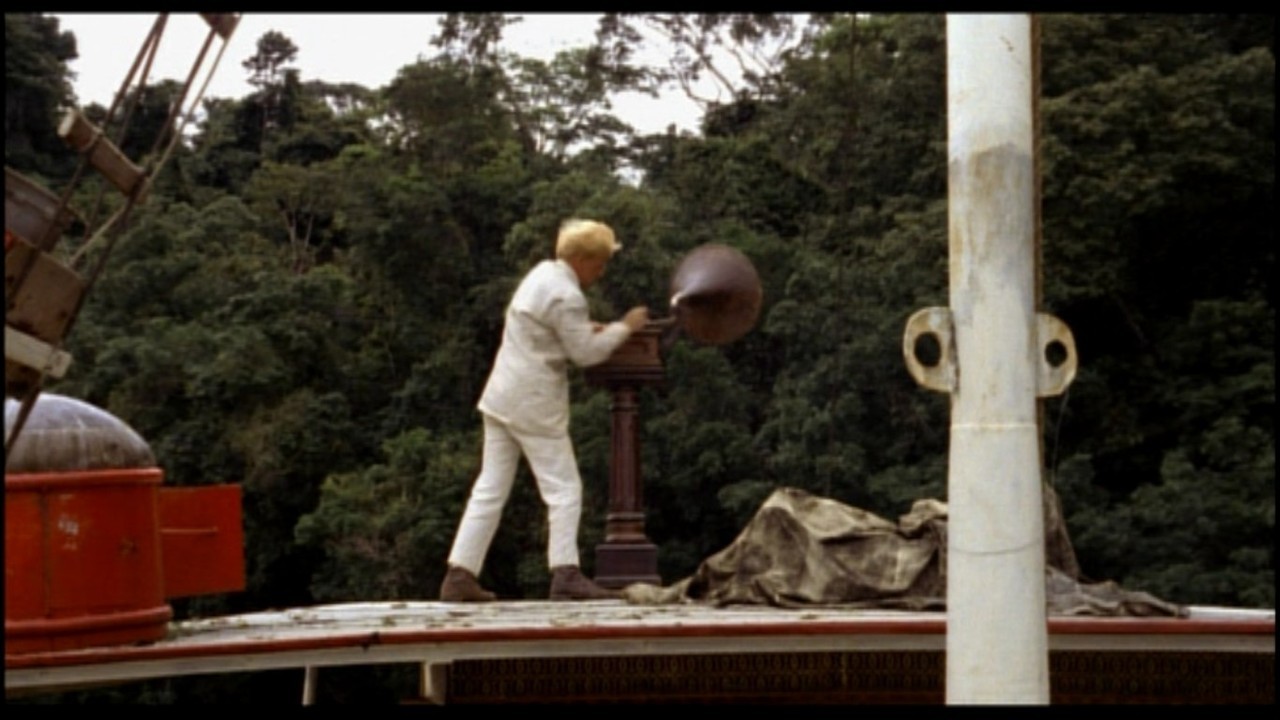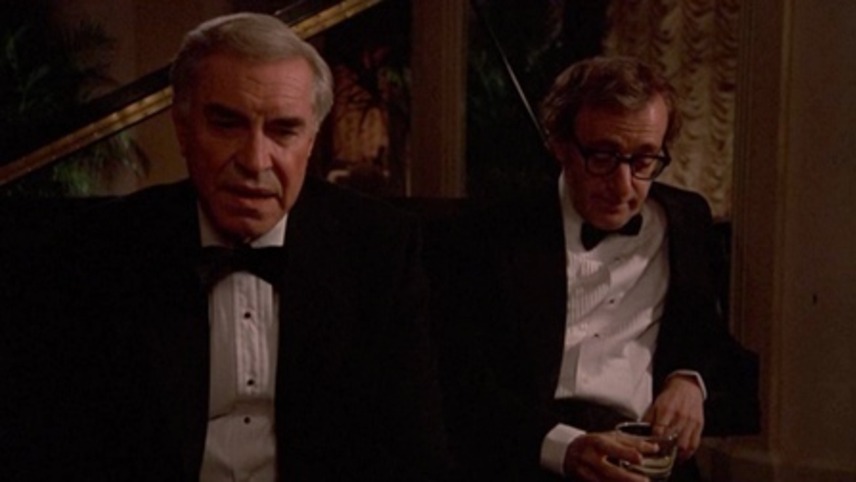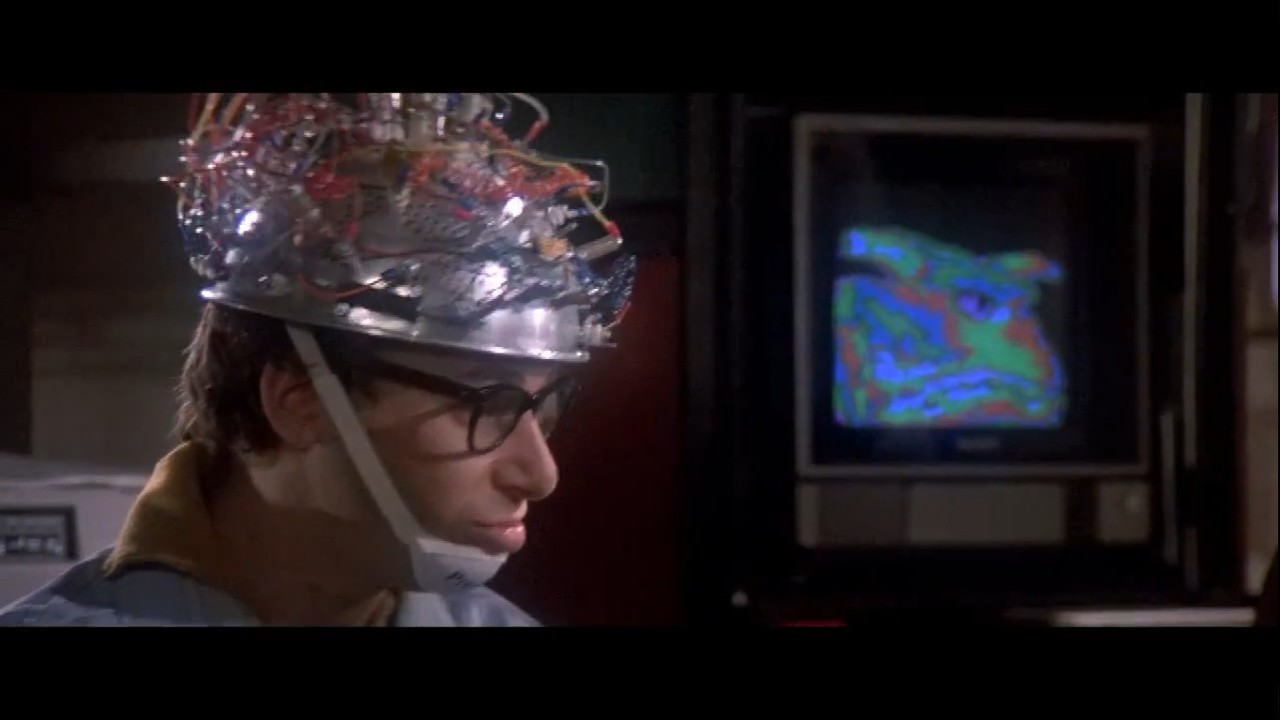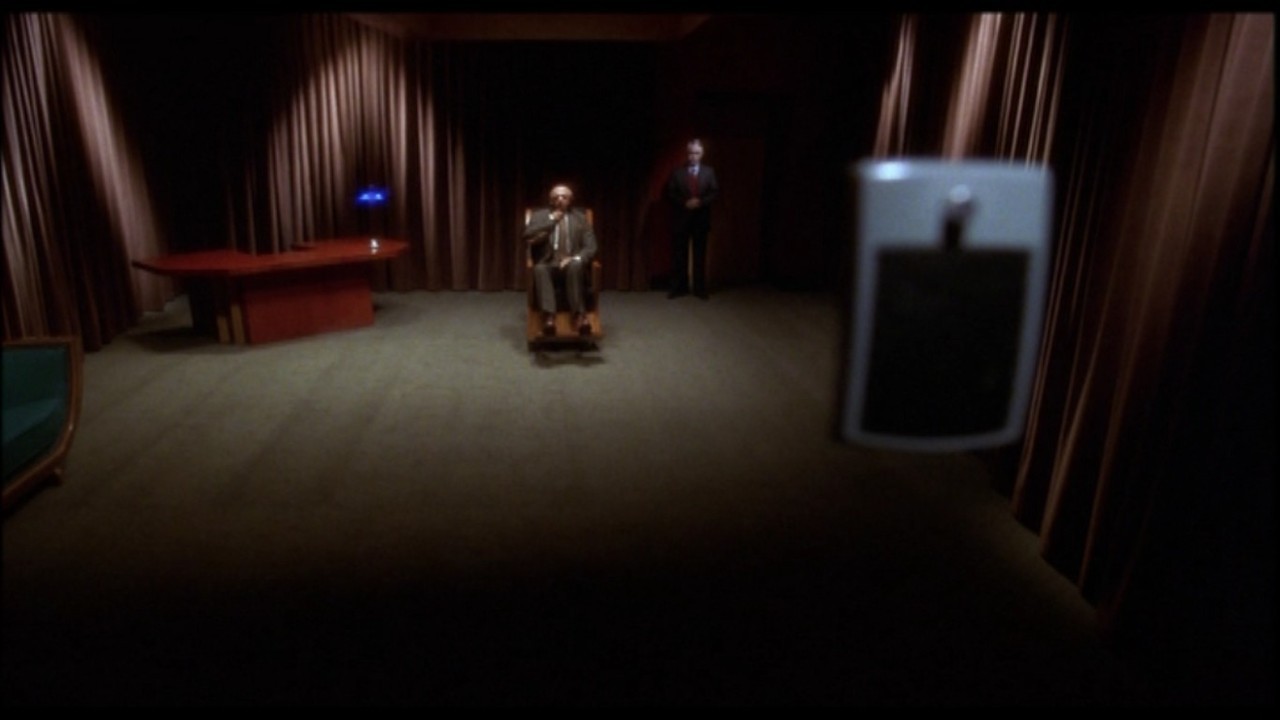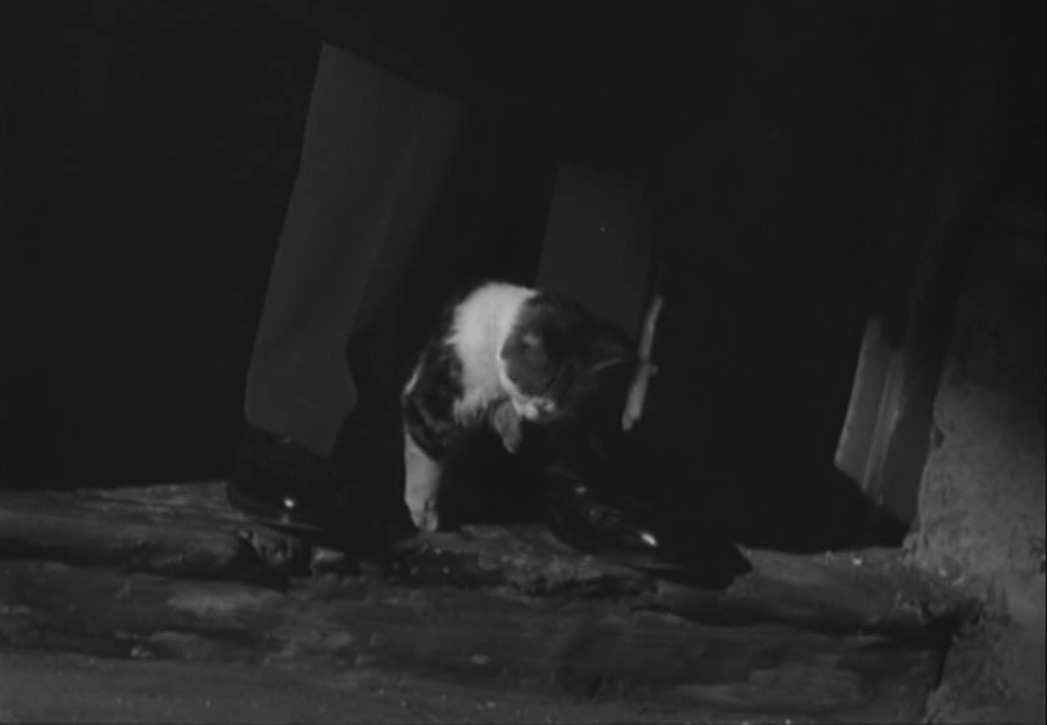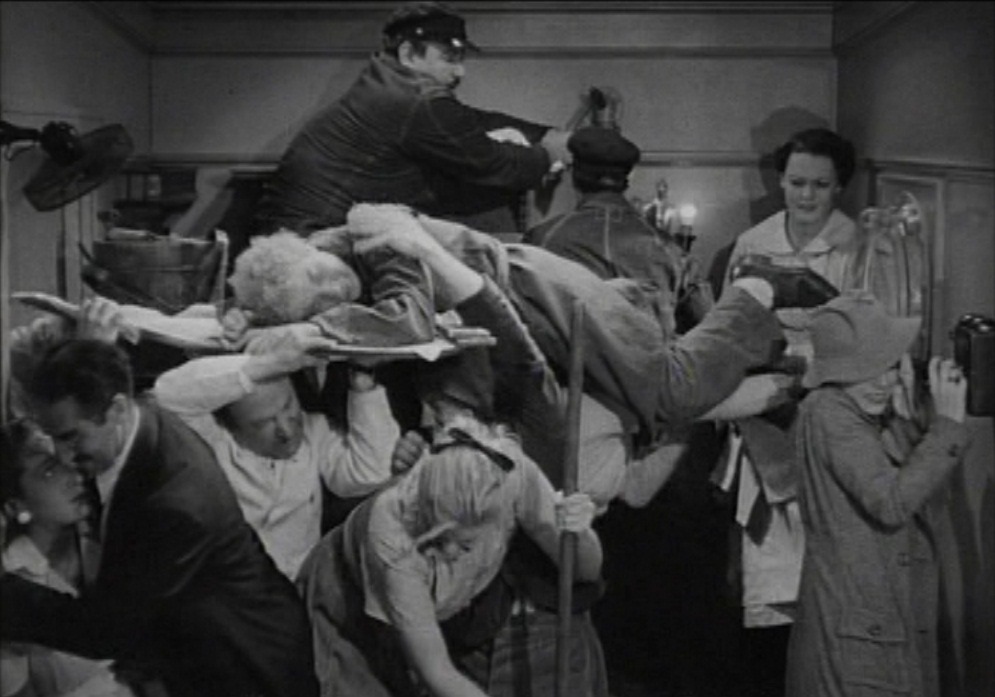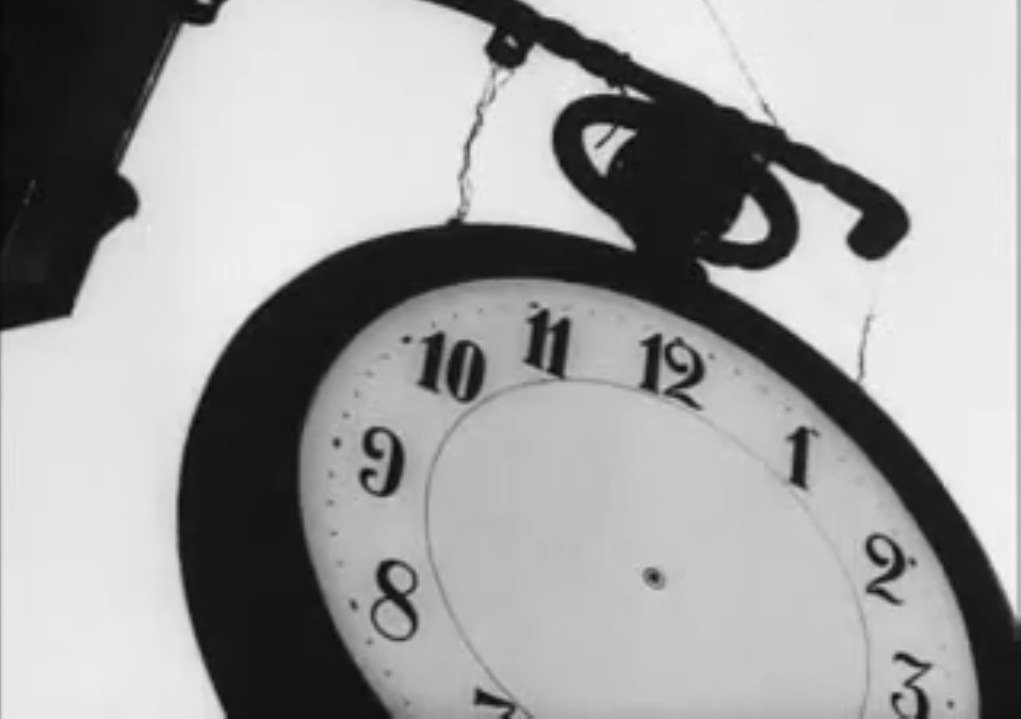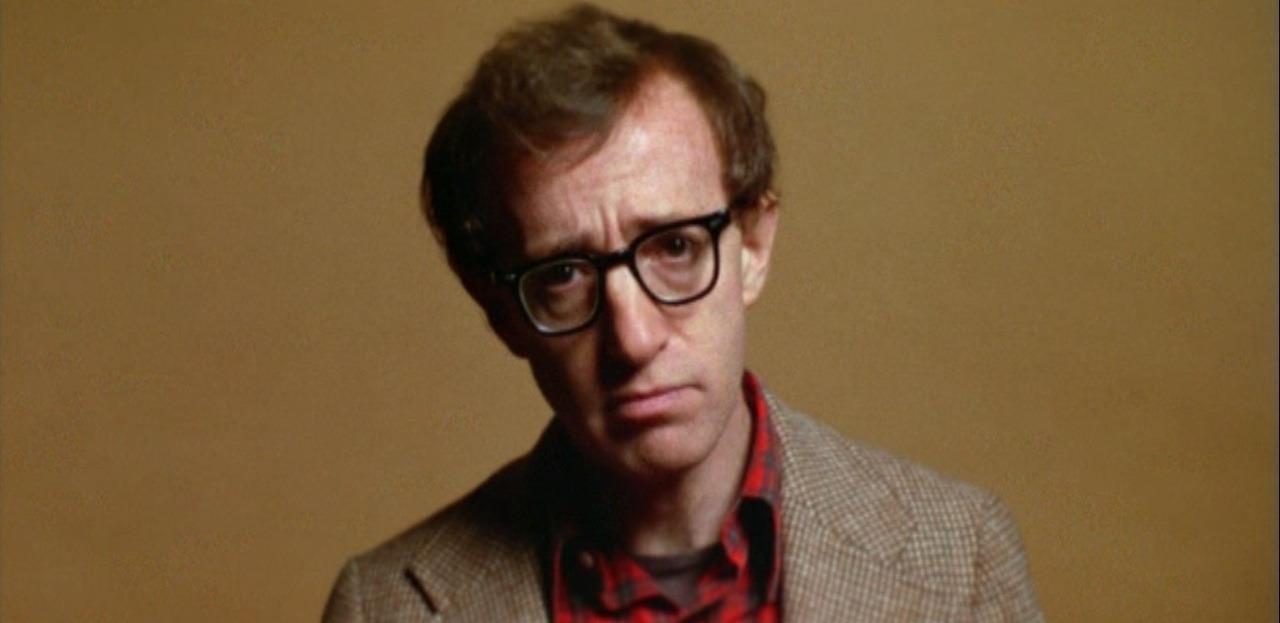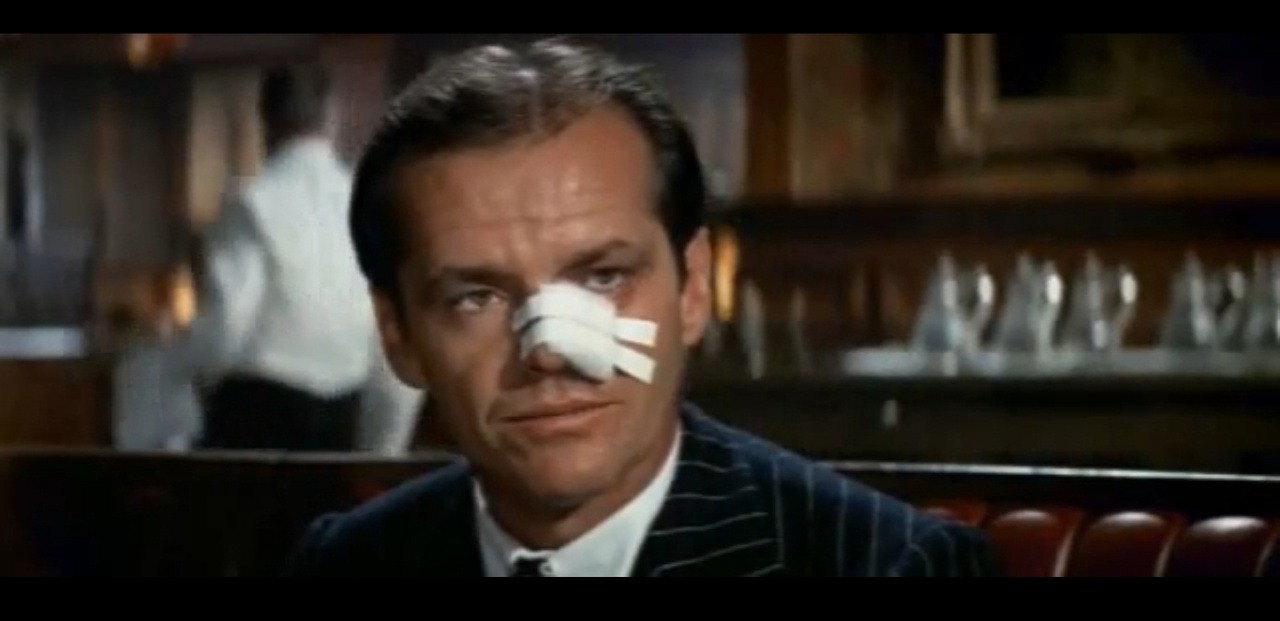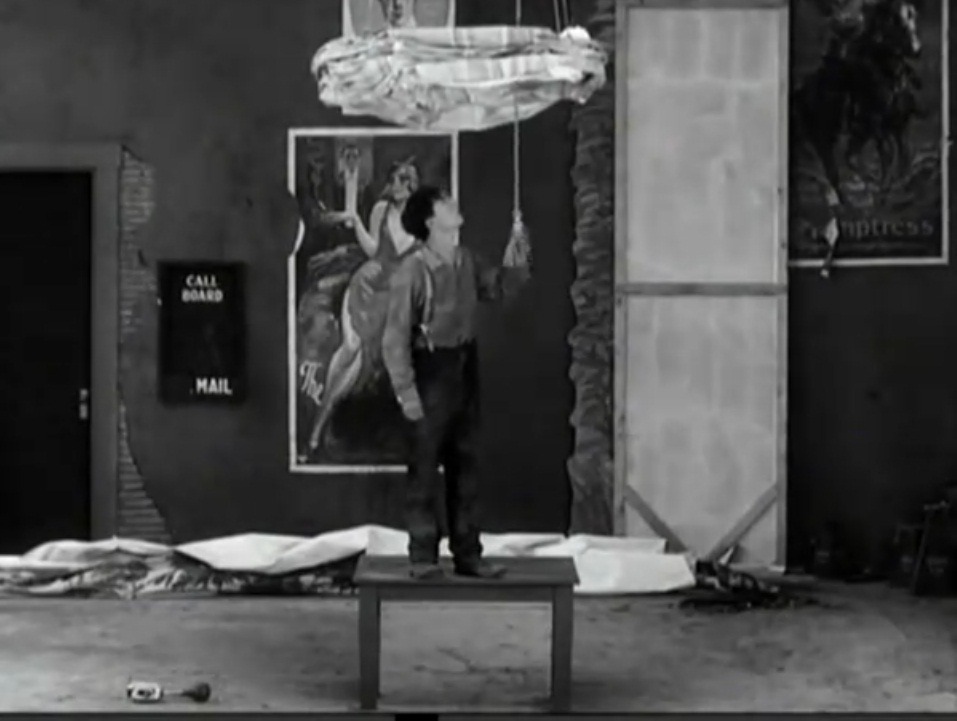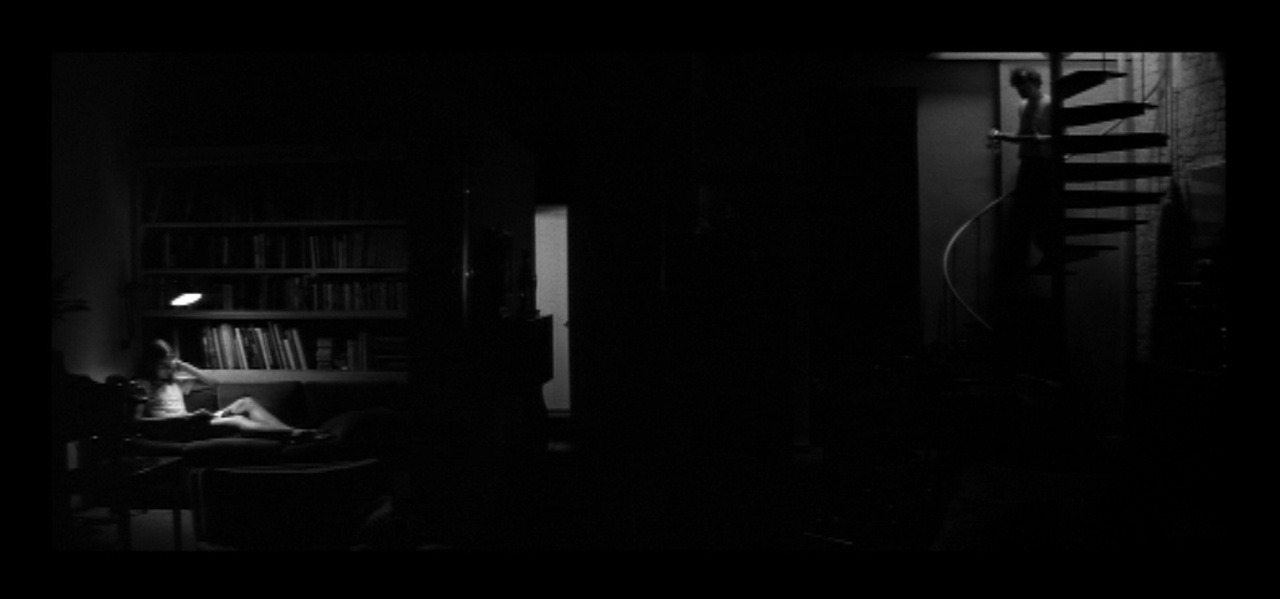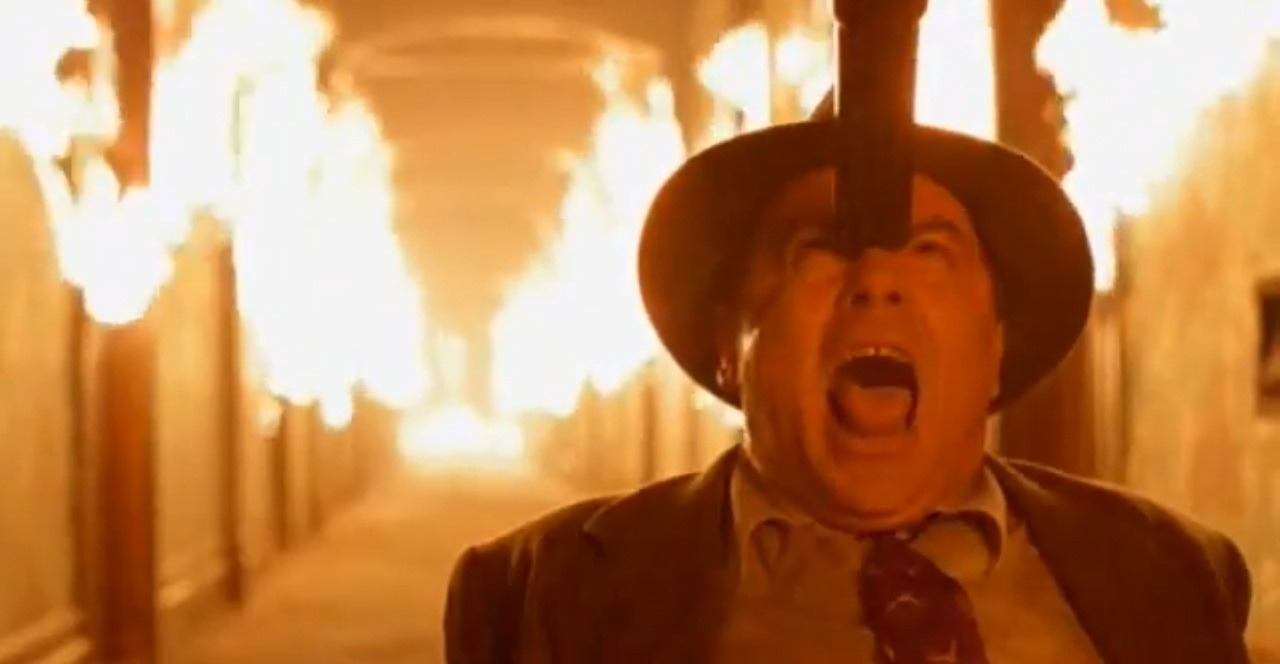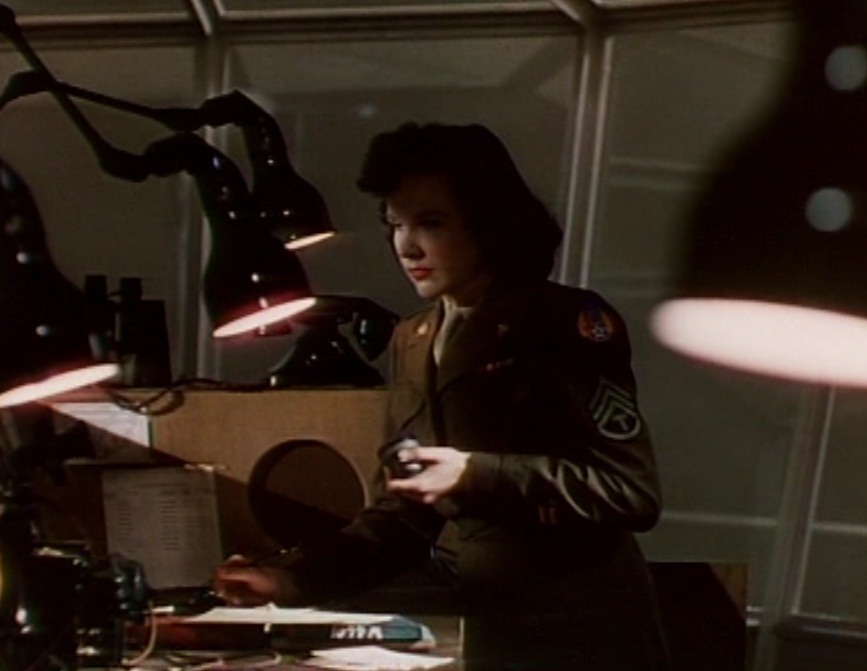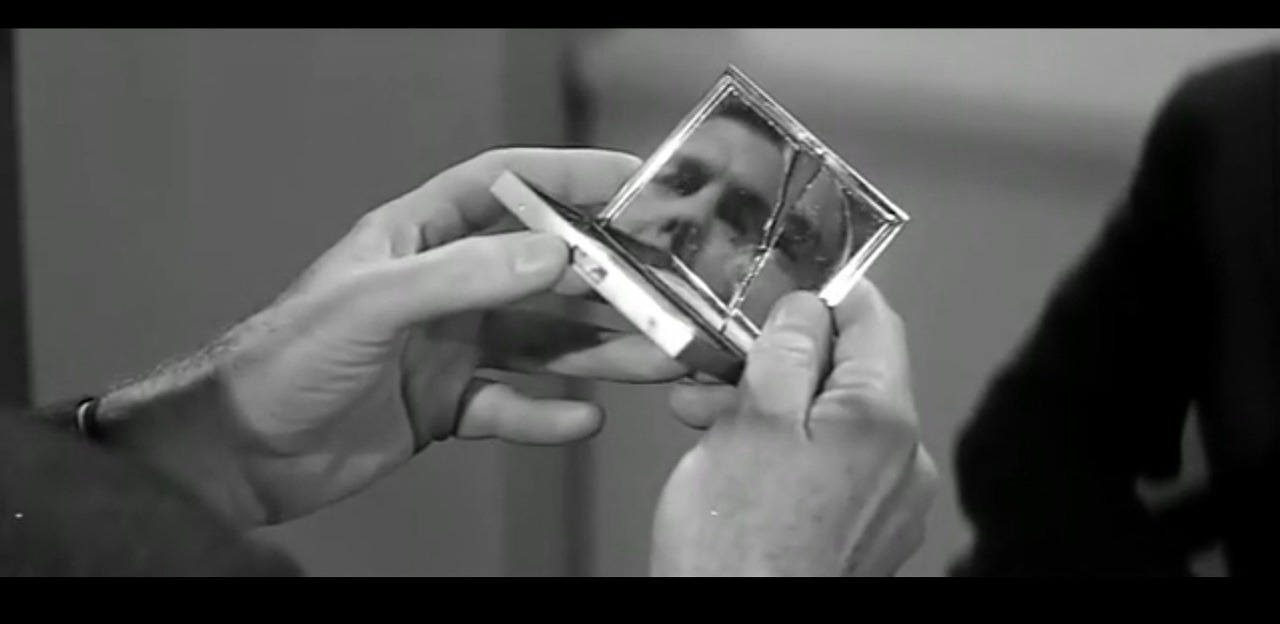I have a near fetishistic love of routine, especially when it involves breakfast. Since I started work, I've enjoyed arriving at the office early, getting myself a nice coffee, maybe a pastry too if I'm feeling indulgent. I sit at my desk in a near empty building, take in the atmosphere of the Thames and read through some articles that take my fancy. For a while, one of my regulars was a column published on the LA Times website. It was titled 'the Big Picture' and written by a rather well informed chap named Patrick Goldstein. He, unfortunately, has since stepped down from the paper/website/thing, but not before producing a final column that inspired me enough to comment, but unfortunately not in a positive regard.
It's a peculiar final post, allowing for only a minimum amount of personal reflection on the lessons learnt during his time at the LA Times. Instead, Goldstein takes the opportunity to aim his vast intellect at "Hollywood" at large. Unfortunately, I have to report that I don't think the article is quite the middle finger to the establishment that Goldstein intended. It is merely one of several misguided, poorly thought out and outdated articles lamenting the death of cinema or the decline of great movie making published in the time that I've been ignoring this blog.
http://www.latimes.com/entertainment/movies/moviesnow/la-et-big-picture-20120822,0,3537850.story
I have so many issues with the article that I could provide a lengthy argument with every point made and end up with a blog post double the size of Goldstein's opinion piece. Aside from making several brief, wide ranging and, in some cases, contradictory points, I think the biggest crime Goldstein commits is allowing his heart to influence his memories. He maligns today's Hollywood system, claiming that it has an "aversion to originality", as if this was a recent change. Thankfully Wikipedia is here to allow us to examine such things in more detail. A handy search for "wiki list of the most expensive films of all time" will direct you to a table showing (without adjusting for inflation) a timeline of the highest budgeted films. One thing that you'll note is that, with the exception of Waterworld and Titanic, all of the films are based on novels or existing franchises (including the Bible).
The fact is, when throwing astronomical sums of money at directors/film productions, I don't think it is out of the question for the financiers to look for some security, regardless as to whether this will result in a bad quality film. That's why Goldstein's counterpoint regarding Pixar & Seth MacFarlene is so misguided. Pixar have proved themselves to be a reliable studio in terms of revenue. Seth MacFarlene has also vast evidence of a built-in audience. His fans even got Fox to recommission Family Guy for Christ's sake! It's not like handing over $60m to the production team behind a TV show that lasted four episodes.
There are several things that bother me about such articles. First and foremost, in not strictly explaining what he wants from a film industry, we get a rather muddled view of what Goldstein likes/dislikes in the current environment (so against sequels but for Pixar films - what about Pixar sequels?). Moving past Spike Lee's idiotic statements, I think they are both guilty of romanticising the past. We were extremely lucky in the nineties to have a group of young film makers all allowed to make mid-budgeted and exciting films at the same time. The same thing happened in Hollywood in the 70s and France in the 60s. Just because we haven't the same 'band of brothers' narrative now, doesn't meant that there aren't original voices any more, they're just not grouped together.
I was discussing Formula One records with a friend at work recently. We noted that, despite his reputation as a great racer, Senna won a substantial portion of his total wins from pole position. On the other hand, Prost, a man painted as doing the bare minimum to win his races won far less from the front row. Now, does this tells us that Senna wasn't the great racer that people remember? Certainly not, but it does make us question how much we can rely on our memories as evidence for grand conceptual arguments.
Saturday, October 13, 2012
Wednesday, August 1, 2012
Top 25 Films
In honour of the Sight & Sound Greatest Film Evah List coming out today, I thought I'd post a list of the current cream of my crop. Please note, this only includes films that I've watched in the last three years (i.e. since I started recording such things). There was no Citizen Kane to dethrone because I haven't seen it in the last three years (though, I would note, it would have placed quite highly). Vertigo however, was completely qualified to be included on this list.
25) Never Let Me Go
Me, Tommy, and Ruth
24) His Girl Friday
Oh, you're losing your arm! You used to be able to pitch better than that.
23) Dark Water
仄暗い水の底から
22) This Is Spinal Tap
He was the patron saint of quality footwear.
21) Mystery Train
At the time of his death, if he were on Jupiter, Elvis would've weighed six-hundred and forty-eight pounds.
20) Metropolitan
Well, everyone ceases to exist. Doesn't mean everyone's a failure.
19) The Prestige
Because of course, you're not really looking.
18) Rushmore
I saved Latin, what did you ever do?
17) This Is England
Some people say we're racists.
16) Ed Wood
You must be double-jointed. And you must be Hungarian.
15) Shutter Island
There's just this; can my violence conquer yours?
14) Fitzcarraldo
This church remains closed until this town has its opera house.
13) Crimes and Misdemeanours
He left a simple note that said "I've gone out the window".
12) Ghostbusters
Yes, have some.
11) Mulholland Drive
When you see the girl in the picture that was shown to you earlier today, you will say "this is the girl".
10) The Third Man
9) A Night At The Opera
8) Wild Strawberries
7) Annie Hall
6) Chinatown
5) Steamboat Bill, Jr.
4) Manhattan
Chapter One. He adored New York City. He idolized it all out of proportion.
3) Barton Fink
2) A Matter of Life & Death
1) The Apartment
25) Never Let Me Go
Me, Tommy, and Ruth
24) His Girl Friday
Oh, you're losing your arm! You used to be able to pitch better than that.
23) Dark Water
仄暗い水の底から
22) This Is Spinal Tap
He was the patron saint of quality footwear.
21) Mystery Train
At the time of his death, if he were on Jupiter, Elvis would've weighed six-hundred and forty-eight pounds.
20) Metropolitan
Well, everyone ceases to exist. Doesn't mean everyone's a failure.
19) The Prestige
Because of course, you're not really looking.
18) Rushmore
I saved Latin, what did you ever do?
17) This Is England
Some people say we're racists.
16) Ed Wood
You must be double-jointed. And you must be Hungarian.
15) Shutter Island
There's just this; can my violence conquer yours?
14) Fitzcarraldo
This church remains closed until this town has its opera house.
13) Crimes and Misdemeanours
He left a simple note that said "I've gone out the window".
12) Ghostbusters
Yes, have some.
11) Mulholland Drive
When you see the girl in the picture that was shown to you earlier today, you will say "this is the girl".
10) The Third Man
A person doesn't change just because you find out more.
9) A Night At The Opera
That's what they call a sanity clause.
8) Wild Strawberries
They might as well appoint me Honorary Idiot.
7) Annie Hall
I would, but I need the eggs.
6) Chinatown
Forget it Jake...
5) Steamboat Bill, Jr.
Magic.
4) Manhattan
Chapter One. He adored New York City. He idolized it all out of proportion.
3) Barton Fink
You just don't listen.
2) A Matter of Life & Death
I love you June. You're life, and I'm leaving you.
1) The Apartment
The most heart-wrenching moments in this film are all silent.
Tuesday, July 31, 2012
Peter & Paul and other musings
Peter and Paul were both born, quite independently of one another, on the fifteenth of May, 1959. Peter was born to Frederik and Katarina (née Åkerman) Øresund in Plymouth, his parents having emigrated several years prior for work in travel infrastructure, which Plymouth was in sore need of. Peter was a child who often cried, but found respite from his unhappiness in watching ducks. No other animals had such a calming effect on him.
Paul grew up under the care of Dennis and Della (Paul never remembered her maiden name and wasn't entirely interested) Darrowby. Their home (in which Paul was born) was around the corner from St Mary's Church in Thirsk, Yorkshire. They were not want for attending church, which upset Della who had grown up in a devout Protestant home. Within the first six years of his life, Paul watched his father, who was much older than his mother, retire from his career as a member of the North Yorkshire Police, become an avid impossible-bottle collector and then quickly die from an undiagnosed liver problem.
Both suffered rather ordinary high school lives, though if you were to hear them speak of those days, you'd come away with a far more elevated opinion. Both succeeded in their O-Levels, qualifying them for their A-Levels. Peter was more well rounded intellectually, whilst Paul had a greater affinity for physics and mathematics. Peter was also more skilled at sports, showing a natural aptitude for the fullback position in field hockey, but sadly lacking the physical ability to succeed fully.
Their paths first crossed at the exact age of 21. Both had crossed the Atlantic for study and were attending courses at MIT. Peter's family were more than able to take those substantial bills off his hands. Paul was at the mercy of scholarships and bar work. They met at a social organised for Native Irish persons, which neither of them were, but both were dating someone that would vaguely meet that description. We shall call them Girlfriend Pa and Girlfriend Pe to protect their identities (Peter and Paul do not need such measures of course, on their account of being fictitious).
Peter and Girlfriend Pe had the sort of relationship that many public political figures would do well to aspire to. Missionary sex once a month and frequent fraught conversations, but counterbalanced by many public and conservative dates and events. Both were active in several societies and committees, however, Girlfriend Pe was far more interested in leading such bodies and often quite viciously at that. Peter was quite happy to let her do so, even in their relationship. She had been conceived in Ireland, but born right there in Massachusetts. Though she tore into anyone who claimed so, she was torn up inside by what she perceived to make her an inauthentic Irish lady. Fittingly then, most aspects of her personage seem designed to compensate for this - her name had far too many vowels and accents, her light blonde hair was forever scorched, her favourite book was Ulysses, she was thoroughly unpleasant to those seem deemed as frauds to her heritage and though she had never visited her beloved homeland, she frequently told fantastically detailed and imaginative stories suggesting otherwise.
While Peter and Pe were at the start of what would prove a lengthy but ultimately loveless endeavour, Paul and Pa were no more than blimps on each other's timelines. There were no grand declarations of attachment, no intricate plans for romantic adventures at the zoo. No feelings were ultimately hurt, well, none that lasted the test of time. They had met in a student bar and taken things as they had come. Pa was already becoming disillusioned with the prospect of Paul. His mother had not taken another partner after his father's death and accordingly, his imagination for romance had been stunted. They would remain an item for another few weeks and, although they would not remain within the same close sphere of friends, they would grant each other the satisfaction of brief conversations in passing, discussing what the other had been filling their time with as of late.
The Irish Association of MIT were hosting a charity ball on the fifteenth of May, 1980. Long after the speeches and the dances and the meals and the loosening of the bow ties, Paul went and sat at the bar. He disliked many of Pa's friends and savoured some time alone. They were talking about some dead leftie leader behind the Iron Curtin that he had no interest in. She'd pick him up before she wanted to head home, he mistakenly thought. He ordered a scotch and laughed at what he thought was an incredibly witty drink request. Don't judge him too harshly, it was well past his usual bed time and he had already ingested a great deal of various other liquors. Peter was frequently worried about the manner in which he was perceived and as such, tried not to drink heavily at such events. His tux was still as finely pressed as when it was donned at the start of the evening, give or take a few creases. At his fine lady's request, he was bringing in a bottle of champagne for the guests at his table, which contained at least one future faculty member, one future S&P 500 board member and one current junkie.
Peter approached the far left of the bar. At this point in the evening, there were no queues or crowds and there were only a handful of people dotted along the oak plank; mainly dejected loners. Paul stood, unknowingly to the left of Paul, who at this time was enjoying his laughter-inducing scotch while simultaneously lighting a cigarette from a half full pack he'd found earlier on beside a pay phone. Paul leaned over to alert the barman of his presence and gave his order in a manner betraying his fatigue.
"That's not an Irish accent."
Of course, to Peter, this sounded more like "Dat not ffffffuddle gah." Peter turned to the source of this gabble and saw Paul. After sizing him up, Peter noted that his tux was looking quite lived in and the sweat on his brow beginning to make an escape to his neck.
"Excuse me?"
"I said, that's not an Irish accent," Paul repeated and gave a wink to his compatriot of the British Isles.
"Haha, yes, guilty, I'm not..."
"And you're not American neither." Peter had now attracted Paul's full attention. He pivoted on his bar stool, spilling some of that side-rippingly funny whiskey in the process. "That means you must be like me!"
"No, sorry, I think you're mistaken, I'm Swed..." Peter's protest had begun, but it was too late. With the speed of a sloth and weight of a juggernaut, Paul had risen and grabbed Peter around the shoulders.
"Look at us, English...boys in the States," Paul emphasised the pause by tapping his fist on his chest and then Peter's during its length. "But we don't get societies and songs and jigs to celebrate it. Let's order some English drinks! No, we can't. We don't have any."
The barman reappeared with champagne on ice. He enquired as to the number of glasses required and informed Peter of the price. He was very professional.
"Oh old chum," Paul spitted with venom, "I didn't know you were a toff. Forgive me, I was not to know, I shall stopeth besmirching and bequeathing thousth's personage." He slumped back to his seat, giving the fanciest hand movement his booze-addled mind could muster and turned back to face the bar. The barman reappeared with the glasses, but Peter was far too taken back by Paul's behaviour to notice.
"Say, are you ok here?" Peter slowly placed his hand on Paul's shoulder, but it was shrugged off. It was at this point the barman caught Peter's attention. Peter handed him several bills, collected his glasses and returned to table, as triumphantly as one can while balancing champagne flutes in one hand and a spruced up bucket in the other. Paul's head slowly lowered to the bar and he began to drift off.
The next day, Paul's hangover was the least of his worries. He'd managed to lose $400 betting Miss Arizona in the Miss USA competition during the early part of last evening's festivities, a fact that was only dawning on him now.
Peter didn't think much of the strange man he met that night until he and Pe made a very public date to see the Empire Strikes Back. They queued around the block like so many other lovebirds. It was when Han Solo appeared that he remember the very drunk and quite possibly racist student at the bar. He could no longer focus on the intricacies of the film and instead spent the rest of the running time intensely questioning what this subconscious comparison said about him.
--------------------------------------------------------------------
Other musings
All film talk has been focused on the summer behemoth that is the Dark Knight Rises. As always, covered much better else where.
I've been sidelined recently by two illness which obviously accounts for the above. 1) Viral infection - this was nifty - vomiting, awful headaches, breathing pains. And then as soon as that had cleared up... 2) Tonsillitis. Having never had tonsillitis before, the novelty of legitimately being able to eat ice cream for a meal was endearing, but that soon passed.
After returning from the Wirral, my brother and my mum travelled with me and spent a week in London prior to the Olympic deluge. As I was working, I couldn't do much with them, but I did find time to visit the British Museum with them. I found the Japan exhibition wistfully nostalgic.
Not many new films seen, but plenty of older ones. Blogging has been slow due to the illnesses described above and because I'm writing an article presently about an older movie lady.
Now if you'll forgive me, it's late, I'm hungry and I have the odd compulsion to eat fish fingers and chips before retiring to bed with Hemingway. Night all.
Paul grew up under the care of Dennis and Della (Paul never remembered her maiden name and wasn't entirely interested) Darrowby. Their home (in which Paul was born) was around the corner from St Mary's Church in Thirsk, Yorkshire. They were not want for attending church, which upset Della who had grown up in a devout Protestant home. Within the first six years of his life, Paul watched his father, who was much older than his mother, retire from his career as a member of the North Yorkshire Police, become an avid impossible-bottle collector and then quickly die from an undiagnosed liver problem.
Both suffered rather ordinary high school lives, though if you were to hear them speak of those days, you'd come away with a far more elevated opinion. Both succeeded in their O-Levels, qualifying them for their A-Levels. Peter was more well rounded intellectually, whilst Paul had a greater affinity for physics and mathematics. Peter was also more skilled at sports, showing a natural aptitude for the fullback position in field hockey, but sadly lacking the physical ability to succeed fully.
Their paths first crossed at the exact age of 21. Both had crossed the Atlantic for study and were attending courses at MIT. Peter's family were more than able to take those substantial bills off his hands. Paul was at the mercy of scholarships and bar work. They met at a social organised for Native Irish persons, which neither of them were, but both were dating someone that would vaguely meet that description. We shall call them Girlfriend Pa and Girlfriend Pe to protect their identities (Peter and Paul do not need such measures of course, on their account of being fictitious).
Peter and Girlfriend Pe had the sort of relationship that many public political figures would do well to aspire to. Missionary sex once a month and frequent fraught conversations, but counterbalanced by many public and conservative dates and events. Both were active in several societies and committees, however, Girlfriend Pe was far more interested in leading such bodies and often quite viciously at that. Peter was quite happy to let her do so, even in their relationship. She had been conceived in Ireland, but born right there in Massachusetts. Though she tore into anyone who claimed so, she was torn up inside by what she perceived to make her an inauthentic Irish lady. Fittingly then, most aspects of her personage seem designed to compensate for this - her name had far too many vowels and accents, her light blonde hair was forever scorched, her favourite book was Ulysses, she was thoroughly unpleasant to those seem deemed as frauds to her heritage and though she had never visited her beloved homeland, she frequently told fantastically detailed and imaginative stories suggesting otherwise.
While Peter and Pe were at the start of what would prove a lengthy but ultimately loveless endeavour, Paul and Pa were no more than blimps on each other's timelines. There were no grand declarations of attachment, no intricate plans for romantic adventures at the zoo. No feelings were ultimately hurt, well, none that lasted the test of time. They had met in a student bar and taken things as they had come. Pa was already becoming disillusioned with the prospect of Paul. His mother had not taken another partner after his father's death and accordingly, his imagination for romance had been stunted. They would remain an item for another few weeks and, although they would not remain within the same close sphere of friends, they would grant each other the satisfaction of brief conversations in passing, discussing what the other had been filling their time with as of late.
The Irish Association of MIT were hosting a charity ball on the fifteenth of May, 1980. Long after the speeches and the dances and the meals and the loosening of the bow ties, Paul went and sat at the bar. He disliked many of Pa's friends and savoured some time alone. They were talking about some dead leftie leader behind the Iron Curtin that he had no interest in. She'd pick him up before she wanted to head home, he mistakenly thought. He ordered a scotch and laughed at what he thought was an incredibly witty drink request. Don't judge him too harshly, it was well past his usual bed time and he had already ingested a great deal of various other liquors. Peter was frequently worried about the manner in which he was perceived and as such, tried not to drink heavily at such events. His tux was still as finely pressed as when it was donned at the start of the evening, give or take a few creases. At his fine lady's request, he was bringing in a bottle of champagne for the guests at his table, which contained at least one future faculty member, one future S&P 500 board member and one current junkie.
Peter approached the far left of the bar. At this point in the evening, there were no queues or crowds and there were only a handful of people dotted along the oak plank; mainly dejected loners. Paul stood, unknowingly to the left of Paul, who at this time was enjoying his laughter-inducing scotch while simultaneously lighting a cigarette from a half full pack he'd found earlier on beside a pay phone. Paul leaned over to alert the barman of his presence and gave his order in a manner betraying his fatigue.
"That's not an Irish accent."
Of course, to Peter, this sounded more like "Dat not ffffffuddle gah." Peter turned to the source of this gabble and saw Paul. After sizing him up, Peter noted that his tux was looking quite lived in and the sweat on his brow beginning to make an escape to his neck.
"Excuse me?"
"I said, that's not an Irish accent," Paul repeated and gave a wink to his compatriot of the British Isles.
"Haha, yes, guilty, I'm not..."
"And you're not American neither." Peter had now attracted Paul's full attention. He pivoted on his bar stool, spilling some of that side-rippingly funny whiskey in the process. "That means you must be like me!"
"No, sorry, I think you're mistaken, I'm Swed..." Peter's protest had begun, but it was too late. With the speed of a sloth and weight of a juggernaut, Paul had risen and grabbed Peter around the shoulders.
"Look at us, English...boys in the States," Paul emphasised the pause by tapping his fist on his chest and then Peter's during its length. "But we don't get societies and songs and jigs to celebrate it. Let's order some English drinks! No, we can't. We don't have any."
The barman reappeared with champagne on ice. He enquired as to the number of glasses required and informed Peter of the price. He was very professional.
"Oh old chum," Paul spitted with venom, "I didn't know you were a toff. Forgive me, I was not to know, I shall stopeth besmirching and bequeathing thousth's personage." He slumped back to his seat, giving the fanciest hand movement his booze-addled mind could muster and turned back to face the bar. The barman reappeared with the glasses, but Peter was far too taken back by Paul's behaviour to notice.
"Say, are you ok here?" Peter slowly placed his hand on Paul's shoulder, but it was shrugged off. It was at this point the barman caught Peter's attention. Peter handed him several bills, collected his glasses and returned to table, as triumphantly as one can while balancing champagne flutes in one hand and a spruced up bucket in the other. Paul's head slowly lowered to the bar and he began to drift off.
The next day, Paul's hangover was the least of his worries. He'd managed to lose $400 betting Miss Arizona in the Miss USA competition during the early part of last evening's festivities, a fact that was only dawning on him now.
Peter didn't think much of the strange man he met that night until he and Pe made a very public date to see the Empire Strikes Back. They queued around the block like so many other lovebirds. It was when Han Solo appeared that he remember the very drunk and quite possibly racist student at the bar. He could no longer focus on the intricacies of the film and instead spent the rest of the running time intensely questioning what this subconscious comparison said about him.
--------------------------------------------------------------------
Other musings
All film talk has been focused on the summer behemoth that is the Dark Knight Rises. As always, covered much better else where.
I've been sidelined recently by two illness which obviously accounts for the above. 1) Viral infection - this was nifty - vomiting, awful headaches, breathing pains. And then as soon as that had cleared up... 2) Tonsillitis. Having never had tonsillitis before, the novelty of legitimately being able to eat ice cream for a meal was endearing, but that soon passed.
After returning from the Wirral, my brother and my mum travelled with me and spent a week in London prior to the Olympic deluge. As I was working, I couldn't do much with them, but I did find time to visit the British Museum with them. I found the Japan exhibition wistfully nostalgic.
Not many new films seen, but plenty of older ones. Blogging has been slow due to the illnesses described above and because I'm writing an article presently about an older movie lady.
Now if you'll forgive me, it's late, I'm hungry and I have the odd compulsion to eat fish fingers and chips before retiring to bed with Hemingway. Night all.
Friday, July 6, 2012
What if Twitter allowed beyond 140 characters and other musings
I'm writing this from the comfort of a window seat on a train to Liverpool. The whole thing should take just over two hours. I'll be treated to all manner of lovely sights along the way as me and my fellow passengers head north. There are fewer fellow passengers than I would expect, but I suppose that's one of the perks to be had with escaping London on a Thursday at a routinely time of 18:07.
I was speaking to a friend recently who commented that any resemblance of routine from her life had been tossed out the window over the last month. I've gone through something similar but only over the last week. Sleeping in is pleasant, but not at the expense of a more comfortable Tube journey. I hate that thing.
Much like any major form public transport, The tube has its own series of automated public announcements. Usually, I find this humorous because of the intonation of the robot lady speaking. It always sounds like she's combining the adjective 'good' to the noun 'service' to make the super noun 'good service'. Yes, I am aware this isn't funny at all, but hey, neither is Family Guy, Michael McIntyre, Mock the Week, My Family, the Big Bang Theory, Two and a Half Men, Knocked Up, American Dad, Kevin James, ... or ... but that doesn't stop them from making a living related to comedy.
Recently, a new public service announcement has appeared over the Underground's tannoys. It involves the Mayor of London proudly announcing that the Mayor of London is addressing his subjects. Then he goes on to inform of some do-it-yourself attitude bullshit regarding the completely inadequate nature of TfL (that's Transport for London for any of those reading this from foreign shores). Being a frequent traveller on the Underground at some ridiculous hours (both early and late), I completely shocked by this attitude. Currently, the Government's attitude to public transport during the Olympics is to tell those living in London 'maybe you don't want to be on public transport for two weeks'. I'm lucky enough to be gifted the opportunity to work at home during this time (so looking forward to it), but for those who aren't, I hypothesise either one of two things will happen.
1) It actually won't be so bad and no one will have any problems.
2) It will drive people who are working to travel earlier all at once, causing two segregated rush hours of 'Olympics tourists' and 'workers'.
Given that London Bridge station already has to close off the Jubilee and Northern Line platforms every morning from 8am onwards to stagger entrance in an attempt to reduce congestion, I wonder which of those two options I find more likely...
I know several people who won Olympics tickets. I always get them to try and name five participants of the sports they're watching. This is especially fun for anyone with tickets to the 100m or any other those rock n' roll, prestigious track and field events. They are so excited to tell you they're going to see the 100m. I couldn't name five 100m runners, but then, it doesn't excite me in the slightest.
I'm listening a record by Air. I wish it were instrumental. That would be more exciting. Less is more.
I have more exam passes under my belt now. I received my results last week. Two passes and an FA (95-99% of the pass mark). How infuriating. I wish they'd tell me my mark, because I can guarantee that my mark for the one I failed is higher than one of my passes. Lots of variation in pass marks there.
My music habits have become more varied lately. I've always maintained that anyone who has a "favourite band" is a bit odd and even more so if said band is signed to a major label. Music has such scope for imagination and as we see the production costs decline, they'll be a spate of absolutely stunning bands self-distributing their records. It's almost like a mathematical theory. As the number of records of a certain quality tends to infinity, you'll always find another band/record that speaks to you more. This is way more likely to happen when trawling through Bandcamp. What a wonderful website. I've been listening to all manners of genres on that. Today was a bit of emo/math-rock, a few jazz-tinged hip hop instrumentals and Ozark spoken word.
So this is what would twitter would be like with beyond 140 characters. Pretty similar, but way less likely to cause any arguments because no one would be bothered to wade through all of this sort of nonsense regularly. Thank you for helping me waste 35 minutes of my train journey.
----------------------------------------
Other musings
Yeah, phoning this one in. I admit it. My excuses? Busy at work, busy writing for a very prestigious publication, drinking too much at exam result celebration drinks.
Been an odd week hockey-wise. The two best free agents on the market (Zach 'Sleaze-A' Parise & Ryan 'Cookie' Suter - those are not their actual nicknames, but I like them) both signed to the same team. Unlike when this happens in other sports, they have both moved to a defiantly average franchise. Hockey is different to other sports. Despite the lack of major interest from television markets (except in Canada), the players are held to very high levels of scrutiny. Both of these players have said the 'right things' about leaving their respective teams ('It was really difficult, I love playing in ... but the chance to play for...' 'It wasn't about the money' yadda yadda yadda), but some choice quotes have emerged suggesting these two have been conspiring for a couple of years for this aim. I think this is unfair to their former teams. Anyway, good luck to them, but considering how poorly managed Minnesota have been in the past, I'm not holding my breath for them to set the world on fire next season.
Heading home for my Nana's birthday this weekend. Asides from all the fun with the family, I'll be spending lots of time shooting the shit, chillaxing, drinking some Brieres with my brother.
Records I recommend from my Bandcamp - http://youblewit.bandcamp.com/album/grow-up-dude
http://wearetrees.bandcamp.com/album/girlfriend
Films of the last few weeks: Killer Joe, Friends with Kids, New York Stories, the Royal Tenenbaums.
Sunday, June 17, 2012
Isn't It Difficult To Rate Documentaries and Other Musings
I may have mentioned this before, but I think that we're currently living in a bit of a renaissance period for documentaries. Since Grizzly Man in 2005, we've been blessed with a plethora of high quality factual films, though I guess that we could trace this streak back to Hoop Dreams or maybe even further back to 7 Up. Maybe we've never had a bad period for documentaries. Ooh, debate. We've also seen an increase in public demand for such films, regardless of artistic merit. I was speaking with an amateur documentary filmmaker at an archive footage workshop a couple of months ago and he stressed that despite their quality, the My Big Fat Gypsy Wedding series and other shows of that ilk highlight that demand and emphasize how willing TV/financiers are to part with their money to invest in non-fiction films compared to, say, around ten years ago. Well, I should stress that I make these kinds of sweeping, vague and no doubt, highly inaccurate statements without much in the way of research, but that's beside the point. The point is to clumsily introduce the notion of documentaries so I can talk about something that's been bothering me.
Last week, being the Woody Allen fan that I am, I made a point of seeing Robert B. Weide's aptly titled Woody Allen: A Documentary. It had been getting some rather rave reviews and, given how high the bar has been set by documentaries recently (Senna, Man on Wire, I'm looking in your direction), I was expecting good things. While I can report that Woody Allen: A Documentary is a very pleasant way to spend two hours, I wouldn't give it an A+ rating. Maybe more of around C+/B- territory. My biggest complaints against the film were:
1) I already knew much of what it was telling me.
2) This information was not being presented in any form of imaginative structure.
I left the cinema generally feeling like I'd watched a two hour wikipedia article. This got me on to internally debating how one should review non-fiction pieces. Should a film be punished if it doesn't actively search for obscure material? Woody Allen definitely succeeds in some places and these are generally when the more unseen but oft written aspects of his story lie. After having heard about his famous typewriter (on which he's written all of his cinematic works), it was a great joy to actually see him type on it. After hearing so much about his "hands-off" directorial approach, seeing him failing to provide Josh Brolin with any form of meaningful critique was hilarious.
I suppose in the end, the most successful documentary films will contain an aspect of cinematic narrative. One only has to look to Senna or the King of Kong, two surprising break out films, to see examples of how a traditional Hollywood white hats versus black hats story can stir up interest in an audience. I also hypothesise then, by no coincidence, Woody Allen is definitely at its worst in the second half when it fails to tie its vast quantity of talking heads to any form of narrative. After an incredible taut tale about the young Allan Stewart Konigsberg and his rise to fame, the second half ambles around aimlessly. To be fair, Woody has made this difficult for them. Although I appreciate his latter films more than others, they don't form a cohesive body, which could be part of their appeal. The eighties were definitely a period of experimentation for him, the nineties a bizarre amalgamation of traditional comedy and blinding cynicism. Shamefully though, all discussion of his seminal classic Husbands and Wives is reduced to the backdrop of the Mia Farrow breakup, and even then, this documentary fails to say anything about the scandal except that it happened.
Perhaps Weide should have just released the first half of this film. It was originally made in two parts for American television and so this wouldn't have been difficult to do. The first half has a structure. Woody Allen becomes a filmmaker, enjoys great success and then threatens to throw it all away with the release of film mocking his fans. That could easily be the story of a New Hollywood 70s classic. The ending so downbeat but also ambiguous. The second half ultimately fails because it tries to be a career retrospective for a filmmaker who, not only hasn't finished working, but has no interest in speaking about his films. Even worse, the people who do have very little of interest to say.
-------------------------------------------------------------------------
Other musings
I've been to the office three times in two days over this weekend. I deserve a gold medal. Fortunately, the first visit was little more than passing visit to start some code running, then I could run off to the cinema while my laptop did its business. Saturday's double bill was Cosmopolis at 1pm then Red Lights after. Red Lights currently enjoys the prestigious title of film I was watching when I was in the worst audience ever. Two men turned up late to the film and attempted to find their friends so they could all sit together. These two men had, not a mobile phone for illumination, but a full-on maglite torch. They not only shone it on the audience, but also at the screen. Twice.
Other films watched this weekend include Jaws, Fantastic Mr Fox and Interiors.
I had an email read out on Filmspotting this week. That and the fact I had a couple of tweets retweeted leads me to believe that over the course of this last week, I was at the highest level of wit I could ever hope to attain. Let's celebrate.
Tomorrow I'm going to see the Apartment on the big screen. I have a spare ticket so let me know if you want to come along. It's really good and you'll get the chance to see me cry at a film (which as we've discussed is not a rare occurrence).
It took all my grit and determination not to write something about Prometheus. This stems from the fact that many of its defenders/supporters have uttered phrases such as "well, at least it's sparked debate, which can only be a good thing." It is not a film that should spark debate, so I am leaving alone.
Treppenwitz turned a year old shortly after the last post. I like to think it's done its job. Hope you've all enjoyed a year of odd rants, reviews, stories and, sometimes, a joke or two.
I leave you today with news that Newcastle University Medical School sucks. I would tell them, but they don't seem to have an official communication line for complaints.
Last week, being the Woody Allen fan that I am, I made a point of seeing Robert B. Weide's aptly titled Woody Allen: A Documentary. It had been getting some rather rave reviews and, given how high the bar has been set by documentaries recently (Senna, Man on Wire, I'm looking in your direction), I was expecting good things. While I can report that Woody Allen: A Documentary is a very pleasant way to spend two hours, I wouldn't give it an A+ rating. Maybe more of around C+/B- territory. My biggest complaints against the film were:
1) I already knew much of what it was telling me.
2) This information was not being presented in any form of imaginative structure.
I left the cinema generally feeling like I'd watched a two hour wikipedia article. This got me on to internally debating how one should review non-fiction pieces. Should a film be punished if it doesn't actively search for obscure material? Woody Allen definitely succeeds in some places and these are generally when the more unseen but oft written aspects of his story lie. After having heard about his famous typewriter (on which he's written all of his cinematic works), it was a great joy to actually see him type on it. After hearing so much about his "hands-off" directorial approach, seeing him failing to provide Josh Brolin with any form of meaningful critique was hilarious.
I suppose in the end, the most successful documentary films will contain an aspect of cinematic narrative. One only has to look to Senna or the King of Kong, two surprising break out films, to see examples of how a traditional Hollywood white hats versus black hats story can stir up interest in an audience. I also hypothesise then, by no coincidence, Woody Allen is definitely at its worst in the second half when it fails to tie its vast quantity of talking heads to any form of narrative. After an incredible taut tale about the young Allan Stewart Konigsberg and his rise to fame, the second half ambles around aimlessly. To be fair, Woody has made this difficult for them. Although I appreciate his latter films more than others, they don't form a cohesive body, which could be part of their appeal. The eighties were definitely a period of experimentation for him, the nineties a bizarre amalgamation of traditional comedy and blinding cynicism. Shamefully though, all discussion of his seminal classic Husbands and Wives is reduced to the backdrop of the Mia Farrow breakup, and even then, this documentary fails to say anything about the scandal except that it happened.
Perhaps Weide should have just released the first half of this film. It was originally made in two parts for American television and so this wouldn't have been difficult to do. The first half has a structure. Woody Allen becomes a filmmaker, enjoys great success and then threatens to throw it all away with the release of film mocking his fans. That could easily be the story of a New Hollywood 70s classic. The ending so downbeat but also ambiguous. The second half ultimately fails because it tries to be a career retrospective for a filmmaker who, not only hasn't finished working, but has no interest in speaking about his films. Even worse, the people who do have very little of interest to say.
-------------------------------------------------------------------------
Other musings
I've been to the office three times in two days over this weekend. I deserve a gold medal. Fortunately, the first visit was little more than passing visit to start some code running, then I could run off to the cinema while my laptop did its business. Saturday's double bill was Cosmopolis at 1pm then Red Lights after. Red Lights currently enjoys the prestigious title of film I was watching when I was in the worst audience ever. Two men turned up late to the film and attempted to find their friends so they could all sit together. These two men had, not a mobile phone for illumination, but a full-on maglite torch. They not only shone it on the audience, but also at the screen. Twice.
Other films watched this weekend include Jaws, Fantastic Mr Fox and Interiors.
I had an email read out on Filmspotting this week. That and the fact I had a couple of tweets retweeted leads me to believe that over the course of this last week, I was at the highest level of wit I could ever hope to attain. Let's celebrate.
Tomorrow I'm going to see the Apartment on the big screen. I have a spare ticket so let me know if you want to come along. It's really good and you'll get the chance to see me cry at a film (which as we've discussed is not a rare occurrence).
It took all my grit and determination not to write something about Prometheus. This stems from the fact that many of its defenders/supporters have uttered phrases such as "well, at least it's sparked debate, which can only be a good thing." It is not a film that should spark debate, so I am leaving alone.
Treppenwitz turned a year old shortly after the last post. I like to think it's done its job. Hope you've all enjoyed a year of odd rants, reviews, stories and, sometimes, a joke or two.
I leave you today with news that Newcastle University Medical School sucks. I would tell them, but they don't seem to have an official communication line for complaints.
Monday, June 4, 2012
The Why of Fry and other musings
I think it says a lot about me when I believe that the perfect protagonist for this day and age actually lives one thousand years in the future. As far as I am concerned, no fiction character comes close to nailing the further nuances of the human condition in the 21st century as Philip J. Fry.
Now, I'm sure that when all is said and done, the history books will revere the Simpsons far higher than Futurama, and in a way I can't fault them. When one looks at the influence on popular culture that has reverberated from the Simpsons, it is impossible to understate how important it has been in the fields of humour, reference and more broadly, what can constitute an animated TV show. However, I have never be able to say that I have been emotionally moved watching the Simpsons. No, that's the job of Futurama.
Futurama was first broadcast in 1999 and after 13 years, 98 episodes and four straight-to-DVD films, it still, for my money, is the most consistent, hilarious, intelligent and emotionally engrossing show on television. Now, there are episodes that are contain some of the finest examples of contemporary humour (Roswell That Ends Well, Fry and the Slurm Factory, Mars University etc etc), but I'm going to focus on what I consider to be the upper echelon of episodes that not only leave one chuckling, but also profoundly affected (see: the Luck of the Fryrish, Jurassic Bark, Parasites Lost, the Devil's Hands Are Idle Playthings, the Late Philip J. Fry and to a lesser extent, the Cryonic Woman and Time Keeps On Slipping).
To me, all the truly great episodes concern not only the miserable themes of alienation, inadequacy, loss and unrequited romance, but also the potential for one to be a better person, regardless of whether one is celebrated for it. The beauty of Philip J. Fry is that, despite his horrendous intellectual deficiencies, he still operates as the everyman due to his displacement from his natural time (our present era (well, give or take ten years)) to 1000 years into the future. Hence, his confusion is our confusion, especially in the earlier series. However, it is not a stretch, especially considering the current trend for contemporary satire in the show, to further compare his separation from the world around him to our position now. Look around you. Give or take a couple of hover cars, we're not a million miles away from the backdrop of New New York. Despite this aiding in the show's satire, the two are very different for Fry. This is what gives him a underlying sense of tragedy. The show's liberal use of time travel aside, Fry can't never return to his previous life.
Fry's stupidity may harken back to the Simpsons clan, but he also has a strong moral side that, unlike that yellow family, never seems forced. Consider the conclusion to Parasites Lost. He wants to woo Leela, yet he knows that the romance will only satisfy him if she is truly in love with him for all his flaws. The worms are cast out and Leela rejects him. Although I can imagine an ending like this shoehorned onto Bart Simpson, it really doesn't suit. In fact, the only instance of Fry truly succeeding in wooing Leela occurs in Time Keeps On Slipping, but unfortunately this is lost due to time skipping forward. Now that's a tough break.
------------------------------------------------
Other musings
I watch too much Futurama.
Game 3 of the Stanley Cup Final is hosted in LA tonight. I think I'm going to stay up and watch it whilst writing a couple of reviews for New Empress. Hip hip.
I've spent the Jubilee (urgh) weekend watching an awful lot of films (Prometheus, Othello, Ran, Duck Soup, Quatermass and the Pit).
Time to eat pizza and watch the Trouble With Harry.
Now, I'm sure that when all is said and done, the history books will revere the Simpsons far higher than Futurama, and in a way I can't fault them. When one looks at the influence on popular culture that has reverberated from the Simpsons, it is impossible to understate how important it has been in the fields of humour, reference and more broadly, what can constitute an animated TV show. However, I have never be able to say that I have been emotionally moved watching the Simpsons. No, that's the job of Futurama.
Futurama was first broadcast in 1999 and after 13 years, 98 episodes and four straight-to-DVD films, it still, for my money, is the most consistent, hilarious, intelligent and emotionally engrossing show on television. Now, there are episodes that are contain some of the finest examples of contemporary humour (Roswell That Ends Well, Fry and the Slurm Factory, Mars University etc etc), but I'm going to focus on what I consider to be the upper echelon of episodes that not only leave one chuckling, but also profoundly affected (see: the Luck of the Fryrish, Jurassic Bark, Parasites Lost, the Devil's Hands Are Idle Playthings, the Late Philip J. Fry and to a lesser extent, the Cryonic Woman and Time Keeps On Slipping).
To me, all the truly great episodes concern not only the miserable themes of alienation, inadequacy, loss and unrequited romance, but also the potential for one to be a better person, regardless of whether one is celebrated for it. The beauty of Philip J. Fry is that, despite his horrendous intellectual deficiencies, he still operates as the everyman due to his displacement from his natural time (our present era (well, give or take ten years)) to 1000 years into the future. Hence, his confusion is our confusion, especially in the earlier series. However, it is not a stretch, especially considering the current trend for contemporary satire in the show, to further compare his separation from the world around him to our position now. Look around you. Give or take a couple of hover cars, we're not a million miles away from the backdrop of New New York. Despite this aiding in the show's satire, the two are very different for Fry. This is what gives him a underlying sense of tragedy. The show's liberal use of time travel aside, Fry can't never return to his previous life.
Fry's stupidity may harken back to the Simpsons clan, but he also has a strong moral side that, unlike that yellow family, never seems forced. Consider the conclusion to Parasites Lost. He wants to woo Leela, yet he knows that the romance will only satisfy him if she is truly in love with him for all his flaws. The worms are cast out and Leela rejects him. Although I can imagine an ending like this shoehorned onto Bart Simpson, it really doesn't suit. In fact, the only instance of Fry truly succeeding in wooing Leela occurs in Time Keeps On Slipping, but unfortunately this is lost due to time skipping forward. Now that's a tough break.
------------------------------------------------
Other musings
I watch too much Futurama.
Game 3 of the Stanley Cup Final is hosted in LA tonight. I think I'm going to stay up and watch it whilst writing a couple of reviews for New Empress. Hip hip.
I've spent the Jubilee (urgh) weekend watching an awful lot of films (Prometheus, Othello, Ran, Duck Soup, Quatermass and the Pit).
Time to eat pizza and watch the Trouble With Harry.
Sunday, May 27, 2012
Contextual Exploitation and other musings
A few nights ago, in anticipation of the release of his new film Moonrise Kingdom, I caught up with one of Wes Anderson's earlier films. Despite being a very acclaimed and respected director, I've never sought out his work, even though I very much enjoyed the one film of his that I'd seen prior (1998's rather lovely Rushmore). So I popped the Darjeeling Limited into my DVD player and had another rather lovely evening. The nice thing about Wes Anderson is that you don't have to study his entire oeuvre to spot the man's quirks and interests. Despite the fact that some of his stories may dip into dark territories, the overall atmosphere is very light and frivolous, creating quite the odd juxtaposition.
And my, what dark places the Darjeeling Limited indeed stops at. If you don't wish to know any plot details, then please brave on with extreme caution and trepidation. From the start we know that Owen Wilson's character Francis has been involved in some of accident (it's as plain as the nose and bandages on his face. Boom boom.). As the film continues, it becomes apparent that this was as a result of a deliberate motorcycle accident. This culminates in an incredible scene involving Francis removing his bandages.
In the midst of an exiting and nuanced performance by Wilson, this scene represents almost 'the eye of the storm'. The frantic energy is gone, completely absorbed by the melancholy that almost threatens to burst from Francis' eyes. His face is bruised, not yet healed. His body, as established in earlier scenes, still broken. The spiritual trip he envisioned with his brothers has gone awry. In this moment, Francis is completely defeated. It's an wonderfully moving moment within the film on its own merits, but let us consider for a moment a larger context. The Darjeeling Limited made its world première at the Venice Film Festival on 3rd September 2007 (thank you Wikipedia). This was a week later than Wilson was admitted into a Californian hospital amid reports of depression and a suicide attempt. Within this context, the scene above is completely heartbreaking.
There are many moments like this dotted in film history. I can't have been the only one struck with sadness hearing Heath Ledger's Joker declare that he and Batman were "destined to do this forever". Moments like these must be incredibly difficult for filmmakers and editors. Owen Wilson was lucky enough to survive whatever ordeal he went through and is now happily (one would imagine) married and enjoying his deserved success. In a few years, his brief dalliance with California's health system will no doubt be forgotten and people (Owen and Wes included) will hopefully be able to enjoy the warmth of the Darjeeling Limited without having the real world awkwardly intrude. On the other hand, editing the Dark Knight must have been like stroking a raw nerve with a blunt and rusty razor, especially when there are lines that are so on the nose as the one mentioned above. However, such lines are thematically pivotal to film and it is Ledger's performance (for the most part) raises the film to something more than just a cinematic summer distraction.
Yes, it's only fiction, but there's an awful lot of real people working on every film you enjoy and I bet each of them have a story that could rival the tragedy of any Hamlet or Willy Loman. If only we could set them all to a kicking Peter Sarstedt tune.
---------
Other Musings
Images I have digested in the last 48 hours:
And my, what dark places the Darjeeling Limited indeed stops at. If you don't wish to know any plot details, then please brave on with extreme caution and trepidation. From the start we know that Owen Wilson's character Francis has been involved in some of accident (it's as plain as the nose and bandages on his face. Boom boom.). As the film continues, it becomes apparent that this was as a result of a deliberate motorcycle accident. This culminates in an incredible scene involving Francis removing his bandages.
In the midst of an exiting and nuanced performance by Wilson, this scene represents almost 'the eye of the storm'. The frantic energy is gone, completely absorbed by the melancholy that almost threatens to burst from Francis' eyes. His face is bruised, not yet healed. His body, as established in earlier scenes, still broken. The spiritual trip he envisioned with his brothers has gone awry. In this moment, Francis is completely defeated. It's an wonderfully moving moment within the film on its own merits, but let us consider for a moment a larger context. The Darjeeling Limited made its world première at the Venice Film Festival on 3rd September 2007 (thank you Wikipedia). This was a week later than Wilson was admitted into a Californian hospital amid reports of depression and a suicide attempt. Within this context, the scene above is completely heartbreaking.
There are many moments like this dotted in film history. I can't have been the only one struck with sadness hearing Heath Ledger's Joker declare that he and Batman were "destined to do this forever". Moments like these must be incredibly difficult for filmmakers and editors. Owen Wilson was lucky enough to survive whatever ordeal he went through and is now happily (one would imagine) married and enjoying his deserved success. In a few years, his brief dalliance with California's health system will no doubt be forgotten and people (Owen and Wes included) will hopefully be able to enjoy the warmth of the Darjeeling Limited without having the real world awkwardly intrude. On the other hand, editing the Dark Knight must have been like stroking a raw nerve with a blunt and rusty razor, especially when there are lines that are so on the nose as the one mentioned above. However, such lines are thematically pivotal to film and it is Ledger's performance (for the most part) raises the film to something more than just a cinematic summer distraction.
Yes, it's only fiction, but there's an awful lot of real people working on every film you enjoy and I bet each of them have a story that could rival the tragedy of any Hamlet or Willy Loman. If only we could set them all to a kicking Peter Sarstedt tune.
---------
Other Musings
Images I have digested in the last 48 hours:
Moonrise Kingdom hit UK cinemas yesterday. I went to an 11:40am showing, because I am a bad ass. I was going straight from my hair cut, which I'm not sure about. I am sure, however, that Moonrise Kingdom is very very very very very very very very good. So good, in fact, that it inspired me to go home and cook French toast because it reminded me of my camping experience.
My original plan for the evening involved going to bed around 9pm in order to wake up at 1am to watch Game 6 of the Devils/Rangers series. I couldn't sleep so I watched the Prestige instead. Good use of my time. I might go into it further at a later date, but I really think that it is one of the most imaginatively constructed and downright incredible films of the last 30 years. Why yes, that is a completely arbitrary length time.
Sleep exhaustion may have got the best of me, but last night's hockey game was incredible. I've been an active New Jersey fan since 2008 and they've never been out of the first round until this year. Now they're the Conference Champions. In an attempt not to wake up my housemates, all my celebrating consisted of texting exclamation points to my brother and silently fist pumping. I really wish I'd partaken in more team sports when I was younger. Shame I let the PE department at my school put me down.
But that wasn't the only sporting event I was watching this weekend. After waking up late and doing a bit of studying, I cooked myself some french toast and sat down to watch the qualifying for the Monaco Grand Prix. I know lots of people find Formula 1 incredibly dull, especially when it's at a circuit that famously doesn't lend itself to overtaking, but I really love watching any skilled person go about their passion (see the previous post). I find it so hard to comprehend how accurate these drivers are given the speeds that these cars travel. Plus, it's sunny and it's Monte Carlo. Hardcore yacht porn.
So, while everyone else was outside in the sunshine, I was moping about my room until I kicked myself into gear and went for a cinema trip. I finally caught up with Julie Delpy's 2 Days in New York. It's rather funny. Definitely the best performance I've seen from Chris Rock. Amazing what a talented person like him can do once someone gives him a well rounded character instead of a one-note joke dispenser.
This is me and my new hair looking very impressed with Eurovision.
Going to the New Empress Film Quiz this evening. Wish me luck!
Bonus List: Top 5 Wintery Summer Songs
5) Corridors - Observer Drift
4) Diagnosis - The Weakerthans
3) Heartbeats - The Knife
2) Close to Me - The Cure
1) Never Meant - American Football
Monday, May 21, 2012
Things I Find As Mesmerising As The Raid, Aren't Teaser Trailers Fun, and other musings
My my, haven't I been productive. I hope you readers haven't felt too neglected while I've been flitting about like a social butterfly. I feel pretty awkward. Here I am, asking you cool kids to take me back and all I have to offer is the blog equivalent of a hastily garage bought bouquet of flowers, already looking worse for wear. Maybe if we get them straight into some water, they'll buck up, much like our tenuous writer/reader relationship. So get yourself into a bath, while I give you a poorly constructed list/essay inspired by a film I watched last week.
The Raid (or, if you hail from across the pond, the Raid: REDEMPTION - yes, the caps are necessary) punched its way into cinemas and into our hearts last week. It is rather good, but I'm not sure if I can recommend it to people who find little to enjoy big action spectacles. I don't say this as a self appointed "action fan" - mainly because I wouldn't label myself as that, but more that I find the notion of rejecting a film due to genre a bit ridiculous. Fine, the overt violence displayed in films by the likes of Bruce Lee, Jackie Chan and Tony Jaa might be off-putting to many, but the truth is, that's not real violence. What you see during the running time of the Raid has been as carefully constructed as any ballet you might see and that's what keeps me riveted during such films. Obviously, it helps when you've a plot and solid actors drawing you into the stakes of a situation, but there's something I find incredibly mesmerising about the "let's put on a show" mentality.
I'm obviously a very special (and possibly warped) case. I remember seeing films as violent as the Terminator at a very young age, but the fact is I always knew there was little difference (beyond budget) between Arnie slaughtering a whole police station and my childhood games of Cowboys and Indians (aside - actually the most often game we played in primary school was Jurassic Park. The boys were the park goers (Neill, Goldblum, etc), the girls were velociraptors. This explains why girls terrify me). Although I loved that Terminator/police station sequence, what I always found more exciting and inspiring was the hilariously dated use of animatronics. Such it looks nigh on awful now, but it really resonated as a kid. I didn't just see Arnie rip his own eye out, that was a model, but someone built that model and that is awesome.
Sadly, special effects don't hold that mystique for me any more. Some might blame computer aided imagery. I definitely could point at least eight of my fingers at my laptop and shout "BLAME!" at the top of my voice. Now don't get me wrong, I appreciate the hard work that goes into programming but unfortunately, unless you geek out over vectors and advanced geometry, the mystery of effects has diminished. Compare An American Werewolf in London and An American Werewolf in Paris - just on the effects please, it's unfair to keep beating the corpse of ...Paris over ten years later. I remember what I thought the first time I saw the transformation sequence in ...London. It was "how?".
Special effects and martial arts share a rather strange place in cinema. Regardless of the quality of the non-fighting sequences in the Raid (hmm, I think that's all of five minutes), the film is inherently jawdropping, tense and, most importantly interesting. Same with the special effects sequences in films like Terminator, An American Werewolf in London and the Thing. In fact, you could replace all the non-effects scenes in the Thing with acting of the quality of the Room and it would still be recommendable. Dancing and music should be two similar sets pieces, but beyond Astaire/Rogers and the musical hi-jinks of Chico & Harpo Marx, these things rarely work in film. I guess when it comes down to it, it's easy to assign life & death stakes to fighting and gooey monsters. I can't think of a tense dance/piano sequence (note to self: Speed with a piano, 30 notes a minute, no dissonance).
-----------------------------------------------------------
So if you follow film as much as I do, you'll have probably seen the three big teaser trailers released today. For those who haven't, please watch below (they're only a minute or so each).
In terms of quality, from start to finish, you should probably watch them in that order. Make sure to full screen the middle one though.
As mentioned in a post earlier this month, spoilers and information presented in trailers is quite the contentious issue. I think all three of these are fairly safe. In fact, there's no guarantee that any footage in the Anchorman and the Master trailers especially will reach the final cut. I like teaser trailers. I think they're a great way of establishing a mood for a film without giving away any of the tricks. So the Master, for example, looks to be continuing the path of the American nightmare that was There Will Be Blood. Skyfall is the most surprising, mainly because I don't have high hopes for anything Craig, Mendes or Bond related and that is an incredibly pretty trailer (Deakins!). Anchorman 2 - sheesh. I hope that's not going to be reflective of the finished product. Painful. At least it's getting straight to what people want. Regardless of how ill defined they are, people enjoyed the KVWN news team.
-------------------------------------------------
Other musings
I have no explanations for you as to why this took me so long to write. I just haven't felt wonderfully inspired lately. I may warm up the old creative muscle and try to write some fiction for next time.
It was Jonathan Hatfull(of http://jonathanwriting.blogspot.co.uk/ fame)'s birthday on Saturday. That was rather messy. In fact, I don't remember much of it and I'm still feeling rather rough from then. I have some odd grazes on my hands, wrists and elbows. I'm quite happy for it to stay a mystery. His birthday gift arrived in the post today. Don't tell him! It's a secret!
Everyone welcome my old friend Thomasin Bailey into the blogosphere! You can find her and her musings on life via Shakespeare here: http://waxenhearts.blogspot.co.uk/ . She's even brave enough to record videos. Say hi, be polite.
Just when comic book movies were being taken seriously... http://goodcomics.comicbookresources.com/2012/05/21/she-has-no-head-dear-marvel-stop-ruining-everything/
Devils/Rangers continues tonight. Do you think work would mind if I turned up tomorrow with my face painted?
As mentioned in a post earlier this month, spoilers and information presented in trailers is quite the contentious issue. I think all three of these are fairly safe. In fact, there's no guarantee that any footage in the Anchorman and the Master trailers especially will reach the final cut. I like teaser trailers. I think they're a great way of establishing a mood for a film without giving away any of the tricks. So the Master, for example, looks to be continuing the path of the American nightmare that was There Will Be Blood. Skyfall is the most surprising, mainly because I don't have high hopes for anything Craig, Mendes or Bond related and that is an incredibly pretty trailer (Deakins!). Anchorman 2 - sheesh. I hope that's not going to be reflective of the finished product. Painful. At least it's getting straight to what people want. Regardless of how ill defined they are, people enjoyed the KVWN news team.
-------------------------------------------------
Other musings
I have no explanations for you as to why this took me so long to write. I just haven't felt wonderfully inspired lately. I may warm up the old creative muscle and try to write some fiction for next time.
It was Jonathan Hatfull(of http://jonathanwriting.blogspot.co.uk/ fame)'s birthday on Saturday. That was rather messy. In fact, I don't remember much of it and I'm still feeling rather rough from then. I have some odd grazes on my hands, wrists and elbows. I'm quite happy for it to stay a mystery. His birthday gift arrived in the post today. Don't tell him! It's a secret!
Everyone welcome my old friend Thomasin Bailey into the blogosphere! You can find her and her musings on life via Shakespeare here: http://waxenhearts.blogspot.co.uk/ . She's even brave enough to record videos. Say hi, be polite.
Just when comic book movies were being taken seriously... http://goodcomics.comicbookresources.com/2012/05/21/she-has-no-head-dear-marvel-stop-ruining-everything/
Devils/Rangers continues tonight. Do you think work would mind if I turned up tomorrow with my face painted?
That man just turned 40. Boom.
To bed! With Vanity Fair, New Empress and a big old glass of water.
Monday, April 30, 2012
That Cabin in the Woods that should not be spoken about and other musings
Now, given the title of this blog post, one would hope that if you haven't seen Cabin in the Woods yet and do not wish to know anything about it, you have closed this window or moved on to another website. Just in case you are really dense, I'm going to put a nice gap in here with lots of asterisks just to emphasise that below this line lies a discussion in which plot, cinematography, acting and various other features of several films will be revealed.
*******************************************************************
*******************************************************************
There. Now the grown ups can talk. If I'm sounding somewhat antagonising, that's because I feel antagonised and want to take it out on all of you. Because I'm nice like that. Cabin in the Woods, after a tumultuous stay on two studios' shelves, finally saw release last month. I'm fortunate to have a friend who saw it months before its general release. He warned me that I would want to avoid any information regarding the film for reasons left vague. So, do you know what I did? Aside from the poster and the trailer that I had seen prior to his warning, I did just that. I didn't watch any promotional materials, interviews, set photos and I sure as hell avoided all reviews. Even on Twitter, it wasn't difficult to avoid reading anything that had the words, "Cabin in the Woods" featured. Many people had a similar idea. However, some of these folk took it upon themselves to lambaste anyone whom they felt gave too much information away in their respective tweets, reviews or conversations.
Spoilers have often been a contentious subject. I remember vividly the anger I felt for my brother when he carelessly revealed the conclusion to Eternal Sunshine of a Spotless Mind. Did that annoy me? Yes. Did impair my ability to enjoy the film? Not especially. It made one of the final sequences seem quite drawn out, but the film more than makes up for it with incredible acting, outstanding effects and the sheer fact that it painstakingly details intense heartbreak and succeeds in bring such raw emotion to the screen visually. Sure, I was angry at my brother, but that was because he offered up the information without any prompting. I didn't ask him how it ended, so I didn't expect him to divulge that detail when I asked him if he would recommend the movie. Now, imagine that it wasn't my brother "spoiling" the film, but a reviewer. Would I be angry at the review? No, I would be angry at myself.
This is where I seem to differ in opinion to those ardent protectors the Cabin and its secrets. I don't think anything should be off limits within a review. If I want to know a reviewer's opinion about a film, I don't think it is right to limit the scope of the review if it is contributing something to one's interpretation or approach to a picture. If Roger Ebert wants to discuss how he feels the final shot of Cabin in the Woods relates to how lacking in finality and consequence horror films have become, I think he has every damn right to. If I don't want to know Roger Ebert's opinion on the final shot of the film, I shouldn't read his review. Now, I think there are some exceptions. If, for example you write for a newspaper along the lines of the Metro or you are the film review for GMTV, you should probably avoid any sort of insightful comments on a film, its proposed message and how the structure, plot and other filmic techniques allow the movie to present this. This is not a proper forum for any detailed discussion on film. No, this is where one presents a glorified recommendation akin to "it will scare the skin off your face" or "loads of laughs, go see it".
What makes this even more baffling to me is that, if one has seen the poster for the film, or any glimpse of Bradley Whitford, Richard Jenkins or their place of occupation, one has seen everything that could constitute a spoiler for the film. Cabin in the Woods doesn't spin the traditional horror movie formula of the last 40 years, but adds another layer. What if all this slaughter that we have witnessed being performed by the likes of Freddy, Pinhead, the Mummy or any number of Stephen King creations was being orchestrated by higher powers for a higher purpose. This is all touched on in the first 10 minutes of the film. Literally everything else in the plot is irrelevant to this discussion. Does it matter that the creatures that plague the teenagers in the Cabin are real or robotic? No, what matters is that they are purposefully being put in to this position by other people. In fact, all this furore about the film's plot hindered my enjoyment of the film. Instead of just enjoying the journey that co-writers Joss Whedon and Drew Goddard were trying to take me on, I was wondering if there were any further spins or layers to be revealed. There weren't. Furthermore, the people orchestrating this odd spoiler witch hunt seemed to have already made up their mind to see the film, so what purpose was reading the review going to serve?
Plot occupies an odd position within film and reviews. It takes far more than good story to make a film great, yet you wouldn't hear people complain that reviewers are spoiling films if they discussed the lush black and white vistas of Manhattan or the incredible audio work on Mulholland Drive. It could be argued that having the plot be a mystery better serves the film going experience. I've seen Shutter Island several times now. Does knowing the ending spoil my experience of that film on repeat views? No, it enhances it and ultimately I think this is what hinders Cabin in the Woods. It's a roller-coaster ride. It's fun, it makes you jump, it provides greats laughs and great performances, but when I watch it again, will I be as heavily invested? Probably not. What makes this such a tight rope for distributors is that, unless you're a huge film geek who cares about specific acting turns or more technical aspects of a film, the plot is what is going to slam your bum on a seat. Consider, as a comparsion, Midnight in Paris. That trailer gave away nothing of the film's plot and as a result, looked tepid and dull. Prior to the film's release, however, everyone was talking about the fantastical time travelling aspect to the film and I'm sure that, along with a popular critical reception, is what drove the success of the film. It was interesting, it sounded different. Cabin, on the other hand, has had an opposite development. The trailer gave away more than many thought it should and then suddenly the self designated protectors of all the Cabin's secrets did the trailer's job for them. They told their friends to avoid the trailers, that this was a great horror film with a twist and that they'd enjoy it very much. Unlike Midnight in Paris, the plot of Cabin was made incredibly tantalising, but was it for the better?
Now, obviously this is just my opinion, I understand that is my own and not one shared by many people. Personally, I rarely read reviews until I've seen a film. I know enough people who care about film to get a rough idea of whether a film is worth watching or not without finding out much about it beyond the director, the actors and a very rough outline of the story. If I'm looking for a recommendation, I turn to them. If I'm looking for an in-depth discussion that may border on plot details, I go to a review.
-------------------------------------------------
Other musings
Yes, the blog is back after my exam hiatus. They were quite nice this time round, so fingers crossed.
Since last we spoke, I've embarked on a Woody Allen marathon. I realised I was watching more of his films a year than any other director's, so I thought I'd get them over with. Recent viewings have included Love and Death, Broadway Danny Rose and Deconstructing Harry. I've also caught up with Avengers Assemble, Tiny Furniture and Once Upon a Time in Anatolia.
The NHL Playoffs have started. Being a cynical New Jersey fan, I severely doubted our ability to survive the first round. We barely did that. Now, our second round match up pits us agains the Philadelphia Flyers. I have doubted our ability to even win a game in this series and, while we haven't done that, we were only narrowly beaten in overtime in the first game. I'm still picking Philly to win.
I found out first hand how dodgy the dodgy fast food chicken place down my road is. Nom.
My good friend Jonathan Hatfull and I maintained our perfect record of coming second in the New Empress film quiz. All him this time round. The theme was action movies which my knowledge of is awfully basic.
*******************************************************************
*******************************************************************
There. Now the grown ups can talk. If I'm sounding somewhat antagonising, that's because I feel antagonised and want to take it out on all of you. Because I'm nice like that. Cabin in the Woods, after a tumultuous stay on two studios' shelves, finally saw release last month. I'm fortunate to have a friend who saw it months before its general release. He warned me that I would want to avoid any information regarding the film for reasons left vague. So, do you know what I did? Aside from the poster and the trailer that I had seen prior to his warning, I did just that. I didn't watch any promotional materials, interviews, set photos and I sure as hell avoided all reviews. Even on Twitter, it wasn't difficult to avoid reading anything that had the words, "Cabin in the Woods" featured. Many people had a similar idea. However, some of these folk took it upon themselves to lambaste anyone whom they felt gave too much information away in their respective tweets, reviews or conversations.
Spoilers have often been a contentious subject. I remember vividly the anger I felt for my brother when he carelessly revealed the conclusion to Eternal Sunshine of a Spotless Mind. Did that annoy me? Yes. Did impair my ability to enjoy the film? Not especially. It made one of the final sequences seem quite drawn out, but the film more than makes up for it with incredible acting, outstanding effects and the sheer fact that it painstakingly details intense heartbreak and succeeds in bring such raw emotion to the screen visually. Sure, I was angry at my brother, but that was because he offered up the information without any prompting. I didn't ask him how it ended, so I didn't expect him to divulge that detail when I asked him if he would recommend the movie. Now, imagine that it wasn't my brother "spoiling" the film, but a reviewer. Would I be angry at the review? No, I would be angry at myself.
This is where I seem to differ in opinion to those ardent protectors the Cabin and its secrets. I don't think anything should be off limits within a review. If I want to know a reviewer's opinion about a film, I don't think it is right to limit the scope of the review if it is contributing something to one's interpretation or approach to a picture. If Roger Ebert wants to discuss how he feels the final shot of Cabin in the Woods relates to how lacking in finality and consequence horror films have become, I think he has every damn right to. If I don't want to know Roger Ebert's opinion on the final shot of the film, I shouldn't read his review. Now, I think there are some exceptions. If, for example you write for a newspaper along the lines of the Metro or you are the film review for GMTV, you should probably avoid any sort of insightful comments on a film, its proposed message and how the structure, plot and other filmic techniques allow the movie to present this. This is not a proper forum for any detailed discussion on film. No, this is where one presents a glorified recommendation akin to "it will scare the skin off your face" or "loads of laughs, go see it".
What makes this even more baffling to me is that, if one has seen the poster for the film, or any glimpse of Bradley Whitford, Richard Jenkins or their place of occupation, one has seen everything that could constitute a spoiler for the film. Cabin in the Woods doesn't spin the traditional horror movie formula of the last 40 years, but adds another layer. What if all this slaughter that we have witnessed being performed by the likes of Freddy, Pinhead, the Mummy or any number of Stephen King creations was being orchestrated by higher powers for a higher purpose. This is all touched on in the first 10 minutes of the film. Literally everything else in the plot is irrelevant to this discussion. Does it matter that the creatures that plague the teenagers in the Cabin are real or robotic? No, what matters is that they are purposefully being put in to this position by other people. In fact, all this furore about the film's plot hindered my enjoyment of the film. Instead of just enjoying the journey that co-writers Joss Whedon and Drew Goddard were trying to take me on, I was wondering if there were any further spins or layers to be revealed. There weren't. Furthermore, the people orchestrating this odd spoiler witch hunt seemed to have already made up their mind to see the film, so what purpose was reading the review going to serve?
Plot occupies an odd position within film and reviews. It takes far more than good story to make a film great, yet you wouldn't hear people complain that reviewers are spoiling films if they discussed the lush black and white vistas of Manhattan or the incredible audio work on Mulholland Drive. It could be argued that having the plot be a mystery better serves the film going experience. I've seen Shutter Island several times now. Does knowing the ending spoil my experience of that film on repeat views? No, it enhances it and ultimately I think this is what hinders Cabin in the Woods. It's a roller-coaster ride. It's fun, it makes you jump, it provides greats laughs and great performances, but when I watch it again, will I be as heavily invested? Probably not. What makes this such a tight rope for distributors is that, unless you're a huge film geek who cares about specific acting turns or more technical aspects of a film, the plot is what is going to slam your bum on a seat. Consider, as a comparsion, Midnight in Paris. That trailer gave away nothing of the film's plot and as a result, looked tepid and dull. Prior to the film's release, however, everyone was talking about the fantastical time travelling aspect to the film and I'm sure that, along with a popular critical reception, is what drove the success of the film. It was interesting, it sounded different. Cabin, on the other hand, has had an opposite development. The trailer gave away more than many thought it should and then suddenly the self designated protectors of all the Cabin's secrets did the trailer's job for them. They told their friends to avoid the trailers, that this was a great horror film with a twist and that they'd enjoy it very much. Unlike Midnight in Paris, the plot of Cabin was made incredibly tantalising, but was it for the better?
Now, obviously this is just my opinion, I understand that is my own and not one shared by many people. Personally, I rarely read reviews until I've seen a film. I know enough people who care about film to get a rough idea of whether a film is worth watching or not without finding out much about it beyond the director, the actors and a very rough outline of the story. If I'm looking for a recommendation, I turn to them. If I'm looking for an in-depth discussion that may border on plot details, I go to a review.
-------------------------------------------------
Other musings
Yes, the blog is back after my exam hiatus. They were quite nice this time round, so fingers crossed.
Since last we spoke, I've embarked on a Woody Allen marathon. I realised I was watching more of his films a year than any other director's, so I thought I'd get them over with. Recent viewings have included Love and Death, Broadway Danny Rose and Deconstructing Harry. I've also caught up with Avengers Assemble, Tiny Furniture and Once Upon a Time in Anatolia.
The NHL Playoffs have started. Being a cynical New Jersey fan, I severely doubted our ability to survive the first round. We barely did that. Now, our second round match up pits us agains the Philadelphia Flyers. I have doubted our ability to even win a game in this series and, while we haven't done that, we were only narrowly beaten in overtime in the first game. I'm still picking Philly to win.
I found out first hand how dodgy the dodgy fast food chicken place down my road is. Nom.
My good friend Jonathan Hatfull and I maintained our perfect record of coming second in the New Empress film quiz. All him this time round. The theme was action movies which my knowledge of is awfully basic.
Friday, March 23, 2012
Why I think "Play It Again, Sam" is every part the equal to "Casablanca" and other musings
Casablanca turned 70 the other day. I celebrated this by watching a film that has Casablanca completely entrenched in its plotting, humour, characters and soundtrack, yet isn't Casablanca. This was the Woody Allen comedy that isn't quite a Woody Allen comedy, Play It Again, Sam. So to recap, I'm watching a film that contains great similarities with Casablanca without being Casablanca, written by one of the great film comedies without seemingly being part of his oeuvre. Got it? Great.
Back in ye olden times, before Woody Allen was the Hollywood workhorse putting out films of varying humour and varying quality every year, he was an inspired stand up comic beginning to encroach art forms, writing several plays, articles and films (including directing the bizarre editing experiment What's Up, Tiger Lily?). So, his own directing/actor career was beginning to pick up when he starred in an adaptation of his own play with future Annie Hall cast members Tony Roberts and Diane Keaton. Allen plays Allan, a film obsessed neurotic Jew obsessed with Humphrey Bogart living in - no, not New York - San Francisco. Yes, seeing a traditional Woody Allen comedy play out in a city away from the Big Apple takes getting use to, especially given that, beyond one sequence on the trams, it could really be set anywhere. Allan is going through a rough divorce and his friends, couple Dick (Roberts) and Linda (Keaton), try setting him up with girls to help. Allan's feelings of inadequacy (of course he has those, it's a Woody Allen character) manifest themselves in the form of a dating advice dispensing Humphrey Bogart (Jerry Lacy). The story documents Allan's terrible dates and his growing relationship with Linda, setting up a Casablanca aping finale.
Casablanca, on the other hand, needs no introduction.
Let me sum up how I feel about these films. I both feel they are pretty equal, however, Play It Again, Sam is always better than its reputations, and Casablanca is the opposite.
Casablanca seems to have hold some prime real estate in movie lists - Best Film, Best Quotes, Best Romance, Best Heroes and on and on. I think it's serviceable. I never buy into the romance of the plot, which is quite damning considering the film identifies itself as one of the best romances of all time. While the finale is fun, it never gets those tears rolling and the script, for all its memorable quotes, really is a bit hokey. The fact that Bogart himself came up with the 'here's looking at you, kid' line really shows given that it is repeated OH I DON'T KNOW, ABOUT THREE OR FOUR TIMES COMPLETELY OUT OF CONTEXT.
On the other hand, Play It Again, Sam is stunningly written. Incredibly inventive, witty and surprisingly emotional. I think what really stuns me is that it takes the finale from Casablanca word for word and actually gives it an emotional heart. Maybe it's just as a consequence as seeing Keaton and Allen as a seminal film romance in Annie Hall, but from the moment their romance is on the cards, the film adds a surprisingly effect emotional layer. When Rick gives up Ilsa, the only thing he seems to be giving up is someone to drink champagne with (as well as someone to direct his horribly overused lines too). Allan on the other hand seems to be giving up the one gal perfect to him. Ah well, they'll always have Manhattan.
-------------------------------------
Other musings
I recently discovered Mystery Science Theatre 3000. It is currently my sound track at work. It's surprising how well it works as a completely audible experience. There's also a strangely melancholic tone to MST3K (especially its end theme) that really reminds me of Space Quest's Roger Wilco or Futurama's Philip J Fry. Obviously I really relate to being trapped in futuristic settings.
I'm watching Gremlins II: the New Batch as I type this. This ties in with being trapped in futuristic settings. It worries me that most offices are scarily similar to the Clamp Enterprises building. On a happier note, Haviland Morris is a fox and the film is still very funny.
Gremlins II is one of the many sequels that I am better acquainted with in comparison to the original (see also: Bill & Ted's Bogus Journey, the Empire Strikes Back and Batman Returns). I had a sequel heavy childhood.
Although ignored from the above article, I have huge issues with Play It Again, Sam's direction. I would have loved to seen an in form 70s Woody Allen take it on. Oh well, maybe in another lifetime.
In non-film news...ummmmm....it was own clothes day in the office today. That's pretty remarkable right?
My Auntie and Uncle are getting married in a couple of weeks time. They've been together for at least 20 years. Bless them and their cotton socks. Do I need to buy a new suit for the occasion?
On the other hand, Play It Again, Sam is stunningly written. Incredibly inventive, witty and surprisingly emotional. I think what really stuns me is that it takes the finale from Casablanca word for word and actually gives it an emotional heart. Maybe it's just as a consequence as seeing Keaton and Allen as a seminal film romance in Annie Hall, but from the moment their romance is on the cards, the film adds a surprisingly effect emotional layer. When Rick gives up Ilsa, the only thing he seems to be giving up is someone to drink champagne with (as well as someone to direct his horribly overused lines too). Allan on the other hand seems to be giving up the one gal perfect to him. Ah well, they'll always have Manhattan.
-------------------------------------
Other musings
I recently discovered Mystery Science Theatre 3000. It is currently my sound track at work. It's surprising how well it works as a completely audible experience. There's also a strangely melancholic tone to MST3K (especially its end theme) that really reminds me of Space Quest's Roger Wilco or Futurama's Philip J Fry. Obviously I really relate to being trapped in futuristic settings.
I'm watching Gremlins II: the New Batch as I type this. This ties in with being trapped in futuristic settings. It worries me that most offices are scarily similar to the Clamp Enterprises building. On a happier note, Haviland Morris is a fox and the film is still very funny.
Gremlins II is one of the many sequels that I am better acquainted with in comparison to the original (see also: Bill & Ted's Bogus Journey, the Empire Strikes Back and Batman Returns). I had a sequel heavy childhood.
Although ignored from the above article, I have huge issues with Play It Again, Sam's direction. I would have loved to seen an in form 70s Woody Allen take it on. Oh well, maybe in another lifetime.
In non-film news...ummmmm....it was own clothes day in the office today. That's pretty remarkable right?
My Auntie and Uncle are getting married in a couple of weeks time. They've been together for at least 20 years. Bless them and their cotton socks. Do I need to buy a new suit for the occasion?
Saturday, March 17, 2012
Attempts to explain five films that inexplicably make me cry and other musings
After four years of mixed interest, I finally sat down to watch Superman Returns on the blu-ray. The disc was annoyingly scratched, disrupting the flow of opening 30 minutes (grr, bloody lovefilm, that's three out of the last five that have had sub-par maintance). Despite this, I was absolutely besotted by the first half of the film. I even got so absorbed into the nostalgic-tinged drama that I felt my eyes welling up after the baseball stadium sequence. Superman had turned his back on Earth and here he was saving the day and being warmly embraced back into the fold, as if he never left. Touching, no?
I cry in a lot of movies. I've been accused of crying too much and at some very odd films. So here is my attempt to justify some of the more recent oddities. Let's get the more explainable ones out of the way first.
1) Chico & Rita - Okay, not much to explain here. If you've ever found it plausible that someone could cry over Casablanca, then you'll understand this. This film revolves around one of those mythic cinema "meant-to-be" couples and of course, they keep getting driven apart. What makes Chico & Rita refreshing though is that the wedge this time isn't any unforeseeable evil force/villain, but instead the actions of the couple themselves.
2) Ponyo - There are three moments in this delightful children's film that thaw that icy heart o' mine. First, there is a sequence early on in which Ponyo, our underwater protagonist, in the process of escaping from her father (and his dreadful taste in fashion) makes her way to a busy coastal harbour. In her attempts to escape the oncoming boating traffic, she becomes ensnared in one of those plastic six-pack holder thingys. Yep, mild peril of the highest degree! Obviously, I was a fish in a previous life. A second escape attempt sees Ponyo, desperate to return to the shore and her new friend Sosuke, disturbs the fragile balance of the ocean, causing great waves to batter the port town in which Sosuke lives. This upsets me jsut because Ponyo is so unaware of the consequences of her actions and furthermore, the danger she is putting all of the townsfolk in. Finally, the film's conclusion makes me cry, mainly because of how final it is. Ponyo makes her choice. She can never go home in the same way again. Her relationship with her family has shifted and it is only in time that she can conclude whether this was the right choice or not.
3) Robocop/Wall-E - I'm tying these two together because they work on a similar theme. There's a moment about two thirds into Robocop, in which our titular hero, plagued by visions of his former life, returns to his former home. His family, thinking him dead (which he kinda is) have moved on and sold the house. Robocop wanders the empty hallways, confronted by his burgeoning memories. Now, although, much like Ponyo, there is an aspect of the finality of his situation (he had his perfect idyllic life and he can never get that back), I think what upsets me more is how he has loss much more than his prior life - he has lost himself. I am also a man that, not only cries like a child at the ending of Wall-E, I would have changed it so that he doesn't get his memories (ergo himself) magically back. Yes, I wanted all the kids to leave that cinema sobbing uncontrollably (to make myself look slightly less pathetic).
4) Hugo - So this one might not seem much of a surprise, but I have to stress that what makes me cry in this film isn't anything to do with plot or the emotion of the characters or anything tangibly about the film. It's just Ben Kingsley. Literally. As soon as he's on screen, the tears start following. He doesn't even have to say anything. He can stand as mute as a toenail and I'll be upset. It just seems to be his performance in this film. Crazy.
5) Moneyball - There's a montage a third into the film where Jonah Hill starts explaining sabermetrics. It's an incredibly edited sequence consisting of spreadsheets, grainy black and white photos and Jonah Hill's voice. It cuts straight to the narrative heart of the film - people judge others not by their true value, whether that be their pitching skill or their skills as a friend, but by superficial affections which result in many of us never fulfilling our potential. Life eh? It's a bitch.
--------------------------
Other musing
I recently had to (yes, had to, there was no other choice) purchase a mouse pad and some coasters. As I've just turned 24, this made me feel very old and practical, so I followed it up with a quick purchase of the complete Rocketeer comics and Heartbeats on DVD. I ranked Heartbeats as my favourite film of 2010 (I know, something beat Shutter Island, crazy). It'll be interesting if it holds up. I'm kinda worried.
I did my first review for an actual magazine. Does that mean I can refer to myself as a critic now? Do I get a critic hat?
I cry in a lot of movies. I've been accused of crying too much and at some very odd films. So here is my attempt to justify some of the more recent oddities. Let's get the more explainable ones out of the way first.
1) Chico & Rita - Okay, not much to explain here. If you've ever found it plausible that someone could cry over Casablanca, then you'll understand this. This film revolves around one of those mythic cinema "meant-to-be" couples and of course, they keep getting driven apart. What makes Chico & Rita refreshing though is that the wedge this time isn't any unforeseeable evil force/villain, but instead the actions of the couple themselves.
2) Ponyo - There are three moments in this delightful children's film that thaw that icy heart o' mine. First, there is a sequence early on in which Ponyo, our underwater protagonist, in the process of escaping from her father (and his dreadful taste in fashion) makes her way to a busy coastal harbour. In her attempts to escape the oncoming boating traffic, she becomes ensnared in one of those plastic six-pack holder thingys. Yep, mild peril of the highest degree! Obviously, I was a fish in a previous life. A second escape attempt sees Ponyo, desperate to return to the shore and her new friend Sosuke, disturbs the fragile balance of the ocean, causing great waves to batter the port town in which Sosuke lives. This upsets me jsut because Ponyo is so unaware of the consequences of her actions and furthermore, the danger she is putting all of the townsfolk in. Finally, the film's conclusion makes me cry, mainly because of how final it is. Ponyo makes her choice. She can never go home in the same way again. Her relationship with her family has shifted and it is only in time that she can conclude whether this was the right choice or not.
3) Robocop/Wall-E - I'm tying these two together because they work on a similar theme. There's a moment about two thirds into Robocop, in which our titular hero, plagued by visions of his former life, returns to his former home. His family, thinking him dead (which he kinda is) have moved on and sold the house. Robocop wanders the empty hallways, confronted by his burgeoning memories. Now, although, much like Ponyo, there is an aspect of the finality of his situation (he had his perfect idyllic life and he can never get that back), I think what upsets me more is how he has loss much more than his prior life - he has lost himself. I am also a man that, not only cries like a child at the ending of Wall-E, I would have changed it so that he doesn't get his memories (ergo himself) magically back. Yes, I wanted all the kids to leave that cinema sobbing uncontrollably (to make myself look slightly less pathetic).
4) Hugo - So this one might not seem much of a surprise, but I have to stress that what makes me cry in this film isn't anything to do with plot or the emotion of the characters or anything tangibly about the film. It's just Ben Kingsley. Literally. As soon as he's on screen, the tears start following. He doesn't even have to say anything. He can stand as mute as a toenail and I'll be upset. It just seems to be his performance in this film. Crazy.
5) Moneyball - There's a montage a third into the film where Jonah Hill starts explaining sabermetrics. It's an incredibly edited sequence consisting of spreadsheets, grainy black and white photos and Jonah Hill's voice. It cuts straight to the narrative heart of the film - people judge others not by their true value, whether that be their pitching skill or their skills as a friend, but by superficial affections which result in many of us never fulfilling our potential. Life eh? It's a bitch.
--------------------------
Other musing
I recently had to (yes, had to, there was no other choice) purchase a mouse pad and some coasters. As I've just turned 24, this made me feel very old and practical, so I followed it up with a quick purchase of the complete Rocketeer comics and Heartbeats on DVD. I ranked Heartbeats as my favourite film of 2010 (I know, something beat Shutter Island, crazy). It'll be interesting if it holds up. I'm kinda worried.
I did my first review for an actual magazine. Does that mean I can refer to myself as a critic now? Do I get a critic hat?
Friday, March 9, 2012
There are eight million stories in the naked city he romanticized all out of proportion and other musings
New York. The Big Apple. The Naked City. The City That Never Sleeps. Gotham. The Capital of the World. The City So Nice, They Named It Twice. I've never been, but I know a few people that have, so it must exist in the real world and not just on movie sets across the world. New York has been well represented in and well treated by Hollywood over the years. Make a list of your top 10 films. Go ahead, I'll wait. I'd wager good (as opposed to morally rehensible) money that New York is featured at least once in that list. How could it not be? Sweet Smell of Success, Ghostbusters, All About Eve, On the Waterfront, Marty, the Apartment, Rosemary's Baby, Midnight Cowboy, Do The Right Thing, the French Connection, Dog Day Afternoon, King Kong, Once Upon a Time in America, When Harry Met Sally, Metropolitan, the Fisher King, Eyes Wide Shut, the œuvres of Woody Allen and Martin Scorsese, and, spoilers ahoy, Planet of the Apes. And that's just scratching the surface. Some of these films are merely set with the five boroughs as a backdrop, others represent the city as its own character.
As a kid, I fell in love with the architecture and feel of New York through Ghostbusters. To this day, I still have a yearning to climb those steps and visit the New York Public Library (which I intend to do in November, touch wood). Film is definitely a medium that idealises many aspects of life, whether it be locations, emotions or situations (both tragic and comedic). Most films do this implicitly, seemingly unaware of their actions or their consequences, but one of my favourite films confronts this head on and also happens to be one of the greatest New York movies of all time; Woody Allen's Manhattan.
There's much going on in Allen's love letter to the town that raised him, especially when pontificating on constant battle between anticipated and realised states in love. However, most of the later scenes in this film are forgotten in favourite for the tour de force that is the opening montage. Voice over is a tricky commodity. It's a particularly delicate tool in a filmmaker's bag. When it goes well, it goes so far in making a film distinctive and successful, (though more recent examples seem to have a comedic presence attached; see Adaptation, Goodfellas, the Big Lebowski). Never has been more apparent to me than watching Jules Dassin's Naked City.
My housemates have been away on holiday this week, so I've been taking advantage of the incredibly quick internet connection in the kitchen by watching high quality streamed films via my film rental service of choice. I've been getting home from work, doing a bit of tidying, doing a bit of study, having tea and sticking something on the old PS3 streaming do'hicky. On Wednesday, I queued up Naked City. I was shocked. The opening sequence was, albeit less successful, riffing on the some of the same ideas as the introductory shots to Manhattan.
The strength of the introduction to Manhattan is how multifaceted it is. Primarily, it acts at a superficial level to introduce us to the setting and the main character, Woody Allen's affected writer Isaac. Context also allows us to extrapolate that Isaac (and therefore by proxy, Woody) is writing autobiographically about his feelings toward New York, all the while providing us with vibrant visuals and music. It's hard not to romanticize New York out of all proportion when presented with a backdrop like that. Furthermore, it introduces us to some of the themes of the film - the gap between expectation and reality, acting according to how one feels as opposed to how one is expected to feel. All that, plus it's funny as well. It's an invigorating sequence made all the better by how well its various aspects work together in unity.
Naked City could not be further from this. Its biggest problem is how disjointed it is. As Jules Dassin would further prove with Rififi, he was a great visual storyteller. There is a completely silent, 33 minute long heist sequence at the heart of Rififi which I can't praise enough. The same sort of visual panache is evident throughout Naked City, in fact, I'd go so far to say that it is visually one of the most consistently high quality films out there. So what's the problem? Well, much like Manhattan, we are presented with a montage of images highlight the different walks of life present in New York, the energy, the sights. Also like Manhattan, there's a voice over. This voice over is one of the most ill-judged and flat out confusing aspects of a film I have seen since Quentin Tarantino being cast in, well, anything.
The narration is presented in an odd, almost Rod Serling manner by producer Mark Hellinger. He tells us who he is, names the players involved, generally acts as a title sequence. The whole thing has a 'you've not seen anything like this folks', PT Barnum showman vibe as it opens, but as it continues, it just becomes more baffling. It starts telling you exactly what you're seeing on screen. First, if you've started watching a film, do you really need someone in the film telling you how good it is? No, that's the job of the promotional material, the film should just be concerned with being good. Secondly, as I've mentioned above, Dassin (and his Oscar winning DP William H. Daniels) know how to construct a story visually. All the information that Hellinger provides, we've already seen. It doesn't require any further pointing out. The whole thing is hokey and redundant. My only hypothesis is that, given that Hellinger died during the post production, the voice over acted as a tribute to a man they enjoyed working with. Unfortunately, it near derails this beautiful example of 40s noir.
-----------------
Other musings
One of my friends has traded his car in for a disused taxi. I can't think of anything worth sharing more than that.
As a kid, I fell in love with the architecture and feel of New York through Ghostbusters. To this day, I still have a yearning to climb those steps and visit the New York Public Library (which I intend to do in November, touch wood). Film is definitely a medium that idealises many aspects of life, whether it be locations, emotions or situations (both tragic and comedic). Most films do this implicitly, seemingly unaware of their actions or their consequences, but one of my favourite films confronts this head on and also happens to be one of the greatest New York movies of all time; Woody Allen's Manhattan.
There's much going on in Allen's love letter to the town that raised him, especially when pontificating on constant battle between anticipated and realised states in love. However, most of the later scenes in this film are forgotten in favourite for the tour de force that is the opening montage. Voice over is a tricky commodity. It's a particularly delicate tool in a filmmaker's bag. When it goes well, it goes so far in making a film distinctive and successful, (though more recent examples seem to have a comedic presence attached; see Adaptation, Goodfellas, the Big Lebowski). Never has been more apparent to me than watching Jules Dassin's Naked City.
My housemates have been away on holiday this week, so I've been taking advantage of the incredibly quick internet connection in the kitchen by watching high quality streamed films via my film rental service of choice. I've been getting home from work, doing a bit of tidying, doing a bit of study, having tea and sticking something on the old PS3 streaming do'hicky. On Wednesday, I queued up Naked City. I was shocked. The opening sequence was, albeit less successful, riffing on the some of the same ideas as the introductory shots to Manhattan.
The strength of the introduction to Manhattan is how multifaceted it is. Primarily, it acts at a superficial level to introduce us to the setting and the main character, Woody Allen's affected writer Isaac. Context also allows us to extrapolate that Isaac (and therefore by proxy, Woody) is writing autobiographically about his feelings toward New York, all the while providing us with vibrant visuals and music. It's hard not to romanticize New York out of all proportion when presented with a backdrop like that. Furthermore, it introduces us to some of the themes of the film - the gap between expectation and reality, acting according to how one feels as opposed to how one is expected to feel. All that, plus it's funny as well. It's an invigorating sequence made all the better by how well its various aspects work together in unity.
Naked City could not be further from this. Its biggest problem is how disjointed it is. As Jules Dassin would further prove with Rififi, he was a great visual storyteller. There is a completely silent, 33 minute long heist sequence at the heart of Rififi which I can't praise enough. The same sort of visual panache is evident throughout Naked City, in fact, I'd go so far to say that it is visually one of the most consistently high quality films out there. So what's the problem? Well, much like Manhattan, we are presented with a montage of images highlight the different walks of life present in New York, the energy, the sights. Also like Manhattan, there's a voice over. This voice over is one of the most ill-judged and flat out confusing aspects of a film I have seen since Quentin Tarantino being cast in, well, anything.
The narration is presented in an odd, almost Rod Serling manner by producer Mark Hellinger. He tells us who he is, names the players involved, generally acts as a title sequence. The whole thing has a 'you've not seen anything like this folks', PT Barnum showman vibe as it opens, but as it continues, it just becomes more baffling. It starts telling you exactly what you're seeing on screen. First, if you've started watching a film, do you really need someone in the film telling you how good it is? No, that's the job of the promotional material, the film should just be concerned with being good. Secondly, as I've mentioned above, Dassin (and his Oscar winning DP William H. Daniels) know how to construct a story visually. All the information that Hellinger provides, we've already seen. It doesn't require any further pointing out. The whole thing is hokey and redundant. My only hypothesis is that, given that Hellinger died during the post production, the voice over acted as a tribute to a man they enjoyed working with. Unfortunately, it near derails this beautiful example of 40s noir.
-----------------
Other musings
One of my friends has traded his car in for a disused taxi. I can't think of anything worth sharing more than that.
Wednesday, February 29, 2012
A trio of films about women in trouble and other musings
I saw a few films this weekend. I know, what's new there eh? This time however, they formed a
nice little marathon together. The films; Persona, Vertigo, Mulholland
Drive. The theme; women in trouble.
I hadn't planned to watch these all together. I had tickets to the BFI screening of Mulholland Drive booked for the Sunday, which had been planned yonks ago. Friday daytime, I had been listening to a Max Von Sydow interview on Radio 4, in promotion for the very oddly Best Picture nominated Extremely Loud & Incredibly Close. Of course, the conversation turned quickly to more interesting matters (read Bergman), which reminded me that I still had a DVD of Persona on my bookshelf which I had received for my birthday two years ago (I had meant to watch it sooner, honest guv). Seeing as it is my birthday in less than a week, I thought that, after getting home from work, I'd get a couple of brieres in and knuckle through it. Then, after that, I wasn't quite sleepy enough to go to bed, so I cracked open the Hitchcock boxset I had received for my birthday three years ago (I had meant to watch more of it sooner, honest guv) and stuck Vertigo in. What wonderful luck it turned out to be! So much influence, theme and content is shared by these three, that I would definitely recommend watching them in close proximity.
All three of these films are heralded as masterpieces and regularly chart highly in those wonderful lists ranking subjective greatness in cinema, so let's get somethings out of the way quickly. There is only one masterpiece in this group. Out of the two remaining, there is only one great film that fails admirably by its own ambitions. The final film unfortunately is not up to the standards set by the other two, even though it contains some of the greatest visuals and music ever set to celluloid. (Oh the suspense!)
The Masterpiece - Mulholland Drive
Bette has come to Hollywood. Bette wants to be an actress. Bette meets Rita. Rita can't remember who she is, but she knows that she has been involved in an accident. Bette and Rita team up to work out this puzzle and find themselves on the periphery of the seedier side of showbiz. Diane and Camilla are actresses. Camilla is far more successful than Diane. Camilla and Diane are having a love affair until Camilla breaks it off and becomes engaged to her director. Camilla seemingly enjoys torturing Diane emotionally. Diane seeks revenge.
This is simultaneously one of the most complex, original and emotional theatre experiences I have ever had. Seeing this again really hits home how upsetting Lynch's lack of productivity lately is. There is no one who makes films like this and, although he has his fair number of supporters and detractors, I don't think we'll truly appreciate these films until Lynch flat out stops making films. No one has such a keen sense of emotion on film without relying on plotting, and consider the scope! Throughout this film, I was scared, touched, heartbroken, entertained and humoured. In fact, it wouldn't be out of place to have a 50s salesman on hand before each screening declaring "Thrills, spills - this has got it all!".
The Admirable One - Persona
I've got the feeling this one may reward repeat viewings. I think I would have flat out loved this film if I had seen it in my teenage years. This film is incredibly minimalist and quite affecting despite this. The plot involves a nurse and her patient, an actress. The patient has stopped communicating or reacting with the outside world, although it seems that this is more self-imposed than neurological. From here on out, where the film goes is open to interpretation, but to me I saw a story about a woman, despite being silent, completely dominates the nurse. So little happens in this film (which is always a good indicator that I'll enjoy it), yet there exists an incredible feeling of intense dread in this film. I really love that this completely exists without the introduction of any major physical intimidation (unlike Kill List).
I really admire how this film attempts to get across an awful lot of complex emotions without using a great deal. There's three settings, barely any props, costumes that suit the minimal approach to the rest of the film and yet, there definitely is something lacking, and no where is this more apparent in the finale of the film. Finally, after suffering so much, the nurse leaves, or is it the nurse? Have the actress and the nurse combined in some way? Or has the actress treated the nurse as a role, absorbed her and in doing so, become her? It's a very intelligent and well constructed film, but I feel that its meaning is too obscured for me to love it, especially in comparison to Wild Strawberries or the Seventh Seal.
The Less Admirable One - Vertigo
One of the nice things about watching films that were released at least 30 years ago is that there is a plethora of critical analysis available for my prying eyes to get a hold on. This especially true when there's a famous actor, director or writer involved. This is especially true when it involves one of the most revered directors of all the ages; Alfred Hitchcock. Let me put some confessions out there. I've currently got a boxset of several Hitchcock films, birthday gift from a couple of years ago, and I had only got through four of about fifteen prior to last Friday (Psycho, The Birds, Rear Window, Shadow of a Doubt). Even greater confession; ehhh, not getting all the love. I certainly had a lot of fun with those films and I wouldn't call any of them terrible (though I would call the Birds bad), but there are many other directors I not only prefer, but admire their abilities greater.
This film upsets me greatly. This is the first of Hitchcock's films in which I really could admire the direction - y'know, that thing that he is really praised for. There is plenty on the internet discussing Vertigo but unfortunately, I couldn't find a huge amount on the internet focusing on why I couldn't sing its praises (I'm sure it exists, but out of the two articles I found one was very good, the other was so poorly researched and written (hello pot, I'm kettle)). For a film that currently sits at 2nd on the 'They Shoot Pictures, Don't They?' Top 1000 (a hugemongous list that culminates rankings from a majority of film publications and ballots, so it's fairly representative of the broad consensus regarding film (aside - I wonder how they weight it? Really gets the voting theory geek in me out)), boy does this film have problems. Let's try and explain away most of these issues. There's a great deal of near hilarious moments that break the rules of the world presented here (e.g. Scotty, an ex-cop, tailing a woman in the least tactful manner ever, the letter writing sequence and all that happens afterwards), but it has often been said that Hitchcock was a director who wouldn't let details get in the way of a great thriller, so let's say that takes account of this. The script is also of some concern. Some of the lines were so clunky, they reminded me of some of the gems contained in James Cameron's Titanic (compare 'Say, weren't we engaged once?' to 'Look at his use of colour here...' - both cause me to crack up in hysterics). But hey, let's call it a stylistic choice. Most of Vertigo feels so dreamy anyway, so why should these characters talk like people? This gets me to a biggest issue: rampant misogyny.
Where to start? Well, the most obvious offenses are in the second half. The female characters are not only badly treated, but presented terribly. In the second half, one female character limps offscreen never to be seen again, while the other is forcibly moulded by James Stewart's ex-cop into the perennial Hitchcockian blonde. Now, this second part has been seen as a personal commentary by the director on himself, some form of possibly derogatory self reflection. I don't feel this stands as a valid interpretation however as, although to our modern eyes Scotty is a deplorable character, the film seems to stand behind him, pandering to his offensive actions. There's also an added layer that the woman of his affections has aided in murder and thus is on the wrong side of the moral compus presented by the film. This isn't even touching on the fact that every female character who comes in contact with Scotty falls in love with him. Consider when the film ends, is it at a natural conclusion? I suppose so without extending it for another half hour, but is it a definitive ending? No. Are all the villains caught and the loose ends tied up? Not a chance. No, the woman in the plot is punished and holds the responsibility for the whole thing, while the actual male mastermind is off getting loaded in Europe, no doubt with a yacht, champagne, models and golf shorts. All of this is a great shame, because visually and audibly, this is one of the greatest films I've ever experienced. I've been a huge Bernard Hermann fan for years, but I don't think any of his other scores come close to this one (well, Taxi Driver isn't far off). Such a shame.
So let's quickly tie this together. Watching Vertigo and Persona first was interesting just to see how important these two films were in inspiring Lynch's career in whole. The break down sequence in Persona really reminds me of Lynch's technique of intense distorted noise matched with extreme close up images (think the match in Wild at Heart, the vinyl in the intro of Inland Empire) and if there's one thing I couldn't praise Lynch enough for, it would be creating such oppressive atmospheres which seems a natural progression from the one present in Persona. It is also not a huge jump to see how the surreal and dreamlike Vertigo leads to part narrative, part sensory essay nature of Lynch's latter films. In fact, I see a perfectly natural progression from the nun at the climax of Vertigo to the creature living outside the diner in Mulholland Drive. Each involves a comment on Hollywood or acting of some kind, even if it is not explicitly in the plot. Is Scotty's reaction to betrayal any different to Bette/Diane's extreme behaviour at the end of Mulholland Drive? Maybe, but I'm torn between which I find more terrifying. Duality of meaning and of identity is rife within each of these, but whereas it only serves as a plot point in Vertigo and somewhat obscured or confused in Persona, Mulholland Drive deals with this, not only successfully, but in one of the most intelligent and original ways I've ever seen. I have often looked across the news wondering how some people can do what they do and still live with themselves. Hell, I've even asked that of myself sometimes. May we all be haunted by our own little elderly couples.
----------------------------------------------
Other musings
So birthday sequence is in full earnest! My brother had his birthday last Monday, mine is the upcoming Monday. Thankfully, my bro totally enjoyed all of his gifts (GITS:SAC, The Changeling, Session 9, a Warhammer artbook and a bizarre mounted photo of Patrick Troughton). I'm totally going to see a mini-marathon of my favourite films from childhood (Ghostbusters, Robocop, the Terminator) this weekend, thanks to my very good friend Jonathan Hatfull (http://jonathanwriting.blogspot.com/)
So Rick Nash didn't jump ship over trade deadline day. Though, with that $7.8m price tag, it's hard not to think that he's chained to the Bismarck that is Columbus. Hmm, actually, scratch that. Bismarck makes Columbus sound like they were once threatening. What's more accurate? I guess the Costa Concordia. Yeah, looking at the Blue Jackets backcheck does make me wonder if they think they're on a cruise.
Study has amped up. I think the sprinting starts now. And on note of sprinting, my training for the Great North Run has stepped up a notch, boom.
I'm thinking of buying some shoes and not just running shoes.
I hadn't planned to watch these all together. I had tickets to the BFI screening of Mulholland Drive booked for the Sunday, which had been planned yonks ago. Friday daytime, I had been listening to a Max Von Sydow interview on Radio 4, in promotion for the very oddly Best Picture nominated Extremely Loud & Incredibly Close. Of course, the conversation turned quickly to more interesting matters (read Bergman), which reminded me that I still had a DVD of Persona on my bookshelf which I had received for my birthday two years ago (I had meant to watch it sooner, honest guv). Seeing as it is my birthday in less than a week, I thought that, after getting home from work, I'd get a couple of brieres in and knuckle through it. Then, after that, I wasn't quite sleepy enough to go to bed, so I cracked open the Hitchcock boxset I had received for my birthday three years ago (I had meant to watch more of it sooner, honest guv) and stuck Vertigo in. What wonderful luck it turned out to be! So much influence, theme and content is shared by these three, that I would definitely recommend watching them in close proximity.
All three of these films are heralded as masterpieces and regularly chart highly in those wonderful lists ranking subjective greatness in cinema, so let's get somethings out of the way quickly. There is only one masterpiece in this group. Out of the two remaining, there is only one great film that fails admirably by its own ambitions. The final film unfortunately is not up to the standards set by the other two, even though it contains some of the greatest visuals and music ever set to celluloid. (Oh the suspense!)
The Masterpiece - Mulholland Drive
Bette has come to Hollywood. Bette wants to be an actress. Bette meets Rita. Rita can't remember who she is, but she knows that she has been involved in an accident. Bette and Rita team up to work out this puzzle and find themselves on the periphery of the seedier side of showbiz. Diane and Camilla are actresses. Camilla is far more successful than Diane. Camilla and Diane are having a love affair until Camilla breaks it off and becomes engaged to her director. Camilla seemingly enjoys torturing Diane emotionally. Diane seeks revenge.
This is simultaneously one of the most complex, original and emotional theatre experiences I have ever had. Seeing this again really hits home how upsetting Lynch's lack of productivity lately is. There is no one who makes films like this and, although he has his fair number of supporters and detractors, I don't think we'll truly appreciate these films until Lynch flat out stops making films. No one has such a keen sense of emotion on film without relying on plotting, and consider the scope! Throughout this film, I was scared, touched, heartbroken, entertained and humoured. In fact, it wouldn't be out of place to have a 50s salesman on hand before each screening declaring "Thrills, spills - this has got it all!".
The Admirable One - Persona
I've got the feeling this one may reward repeat viewings. I think I would have flat out loved this film if I had seen it in my teenage years. This film is incredibly minimalist and quite affecting despite this. The plot involves a nurse and her patient, an actress. The patient has stopped communicating or reacting with the outside world, although it seems that this is more self-imposed than neurological. From here on out, where the film goes is open to interpretation, but to me I saw a story about a woman, despite being silent, completely dominates the nurse. So little happens in this film (which is always a good indicator that I'll enjoy it), yet there exists an incredible feeling of intense dread in this film. I really love that this completely exists without the introduction of any major physical intimidation (unlike Kill List).
I really admire how this film attempts to get across an awful lot of complex emotions without using a great deal. There's three settings, barely any props, costumes that suit the minimal approach to the rest of the film and yet, there definitely is something lacking, and no where is this more apparent in the finale of the film. Finally, after suffering so much, the nurse leaves, or is it the nurse? Have the actress and the nurse combined in some way? Or has the actress treated the nurse as a role, absorbed her and in doing so, become her? It's a very intelligent and well constructed film, but I feel that its meaning is too obscured for me to love it, especially in comparison to Wild Strawberries or the Seventh Seal.
The Less Admirable One - Vertigo
One of the nice things about watching films that were released at least 30 years ago is that there is a plethora of critical analysis available for my prying eyes to get a hold on. This especially true when there's a famous actor, director or writer involved. This is especially true when it involves one of the most revered directors of all the ages; Alfred Hitchcock. Let me put some confessions out there. I've currently got a boxset of several Hitchcock films, birthday gift from a couple of years ago, and I had only got through four of about fifteen prior to last Friday (Psycho, The Birds, Rear Window, Shadow of a Doubt). Even greater confession; ehhh, not getting all the love. I certainly had a lot of fun with those films and I wouldn't call any of them terrible (though I would call the Birds bad), but there are many other directors I not only prefer, but admire their abilities greater.
This film upsets me greatly. This is the first of Hitchcock's films in which I really could admire the direction - y'know, that thing that he is really praised for. There is plenty on the internet discussing Vertigo but unfortunately, I couldn't find a huge amount on the internet focusing on why I couldn't sing its praises (I'm sure it exists, but out of the two articles I found one was very good, the other was so poorly researched and written (hello pot, I'm kettle)). For a film that currently sits at 2nd on the 'They Shoot Pictures, Don't They?' Top 1000 (a hugemongous list that culminates rankings from a majority of film publications and ballots, so it's fairly representative of the broad consensus regarding film (aside - I wonder how they weight it? Really gets the voting theory geek in me out)), boy does this film have problems. Let's try and explain away most of these issues. There's a great deal of near hilarious moments that break the rules of the world presented here (e.g. Scotty, an ex-cop, tailing a woman in the least tactful manner ever, the letter writing sequence and all that happens afterwards), but it has often been said that Hitchcock was a director who wouldn't let details get in the way of a great thriller, so let's say that takes account of this. The script is also of some concern. Some of the lines were so clunky, they reminded me of some of the gems contained in James Cameron's Titanic (compare 'Say, weren't we engaged once?' to 'Look at his use of colour here...' - both cause me to crack up in hysterics). But hey, let's call it a stylistic choice. Most of Vertigo feels so dreamy anyway, so why should these characters talk like people? This gets me to a biggest issue: rampant misogyny.
Where to start? Well, the most obvious offenses are in the second half. The female characters are not only badly treated, but presented terribly. In the second half, one female character limps offscreen never to be seen again, while the other is forcibly moulded by James Stewart's ex-cop into the perennial Hitchcockian blonde. Now, this second part has been seen as a personal commentary by the director on himself, some form of possibly derogatory self reflection. I don't feel this stands as a valid interpretation however as, although to our modern eyes Scotty is a deplorable character, the film seems to stand behind him, pandering to his offensive actions. There's also an added layer that the woman of his affections has aided in murder and thus is on the wrong side of the moral compus presented by the film. This isn't even touching on the fact that every female character who comes in contact with Scotty falls in love with him. Consider when the film ends, is it at a natural conclusion? I suppose so without extending it for another half hour, but is it a definitive ending? No. Are all the villains caught and the loose ends tied up? Not a chance. No, the woman in the plot is punished and holds the responsibility for the whole thing, while the actual male mastermind is off getting loaded in Europe, no doubt with a yacht, champagne, models and golf shorts. All of this is a great shame, because visually and audibly, this is one of the greatest films I've ever experienced. I've been a huge Bernard Hermann fan for years, but I don't think any of his other scores come close to this one (well, Taxi Driver isn't far off). Such a shame.
So let's quickly tie this together. Watching Vertigo and Persona first was interesting just to see how important these two films were in inspiring Lynch's career in whole. The break down sequence in Persona really reminds me of Lynch's technique of intense distorted noise matched with extreme close up images (think the match in Wild at Heart, the vinyl in the intro of Inland Empire) and if there's one thing I couldn't praise Lynch enough for, it would be creating such oppressive atmospheres which seems a natural progression from the one present in Persona. It is also not a huge jump to see how the surreal and dreamlike Vertigo leads to part narrative, part sensory essay nature of Lynch's latter films. In fact, I see a perfectly natural progression from the nun at the climax of Vertigo to the creature living outside the diner in Mulholland Drive. Each involves a comment on Hollywood or acting of some kind, even if it is not explicitly in the plot. Is Scotty's reaction to betrayal any different to Bette/Diane's extreme behaviour at the end of Mulholland Drive? Maybe, but I'm torn between which I find more terrifying. Duality of meaning and of identity is rife within each of these, but whereas it only serves as a plot point in Vertigo and somewhat obscured or confused in Persona, Mulholland Drive deals with this, not only successfully, but in one of the most intelligent and original ways I've ever seen. I have often looked across the news wondering how some people can do what they do and still live with themselves. Hell, I've even asked that of myself sometimes. May we all be haunted by our own little elderly couples.
----------------------------------------------
Other musings
So birthday sequence is in full earnest! My brother had his birthday last Monday, mine is the upcoming Monday. Thankfully, my bro totally enjoyed all of his gifts (GITS:SAC, The Changeling, Session 9, a Warhammer artbook and a bizarre mounted photo of Patrick Troughton). I'm totally going to see a mini-marathon of my favourite films from childhood (Ghostbusters, Robocop, the Terminator) this weekend, thanks to my very good friend Jonathan Hatfull (http://jonathanwriting.blogspot.com/)
So Rick Nash didn't jump ship over trade deadline day. Though, with that $7.8m price tag, it's hard not to think that he's chained to the Bismarck that is Columbus. Hmm, actually, scratch that. Bismarck makes Columbus sound like they were once threatening. What's more accurate? I guess the Costa Concordia. Yeah, looking at the Blue Jackets backcheck does make me wonder if they think they're on a cruise.
Study has amped up. I think the sprinting starts now. And on note of sprinting, my training for the Great North Run has stepped up a notch, boom.
I'm thinking of buying some shoes and not just running shoes.
Subscribe to:
Comments (Atom)
